Lou Llobell has a rare gift: she carries the weight of a galaxy on her shoulders while making it look effortless. As Gaal Dornick in Apple TV+’s “Foundation”, she embodies both the awe of discovery and the burden of destiny, guiding us through a universe where the future of civilization hangs in the balance. For Lou, who stepped into the role as her first major acting breakthrough, the parallels with her own journey are striking – a young woman navigating unknown territory, finding her place, and growing stronger with every challenge.
Three seasons in, Lou’s Gaal is no longer just the wide-eyed outsider; she is a force of her own, evolving in step with an actress who has learned, adapted, and thrived on one of the most ambitious sets television has ever seen. In our chat, she reflects on the challenges and joys of bringing Isaac Asimov’s legacy to life, the importance of representation in imagining the future, and how vulnerability can become the greatest strength.
What is your first cinema memory?
Watching “The Dalmatians”, the first live action film. I think I was about four, and I was obsessed with dalmatians. However, my mum said that I fell asleep halfway through its [laughs]. It was my first time at the cinema, I was super excited to watch the dogs, but I guess as a four-year-old, you love cartoons, and then you see the live action, it’s just not the same.
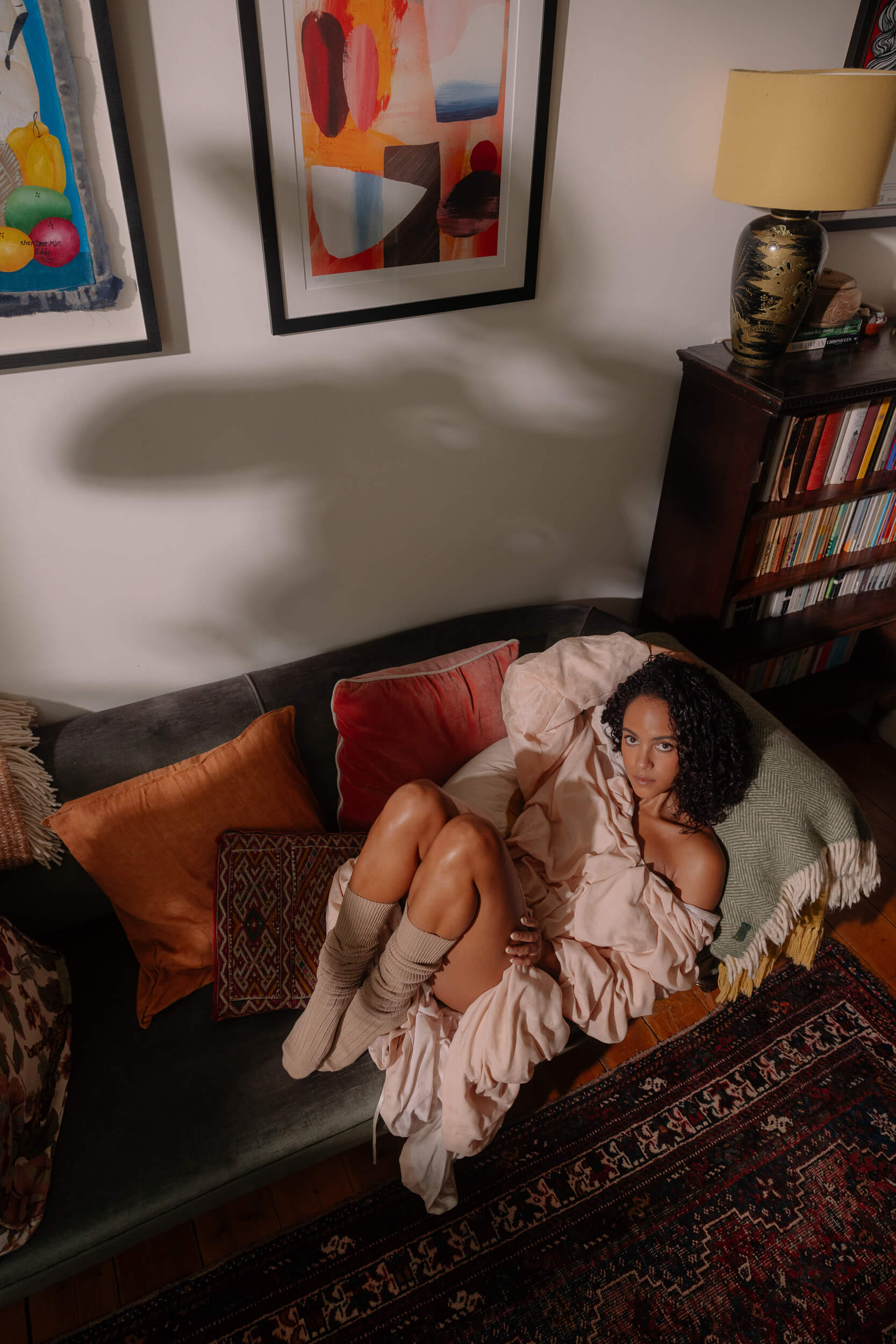
Speaking of “Foundation”, how familiar were you with Isaac Asimov’s novels before joining the show, and how did the books influence your portrayal?
I was familiar enough to know that they were really important. My dad was a super fan, he’d read all the books when he was younger, so, I got the tape through, and I did all the auditions without reading them – I just asked him for help. But I did read the first one, because it was quite similar to everything that happened especially the first episode of season one. The novels, you know, are really dense, and I love to read, but I’m not a reader, I love to read scripts more so than books, and sci-fi isn’t the genre that I would choose to enjoy a book.
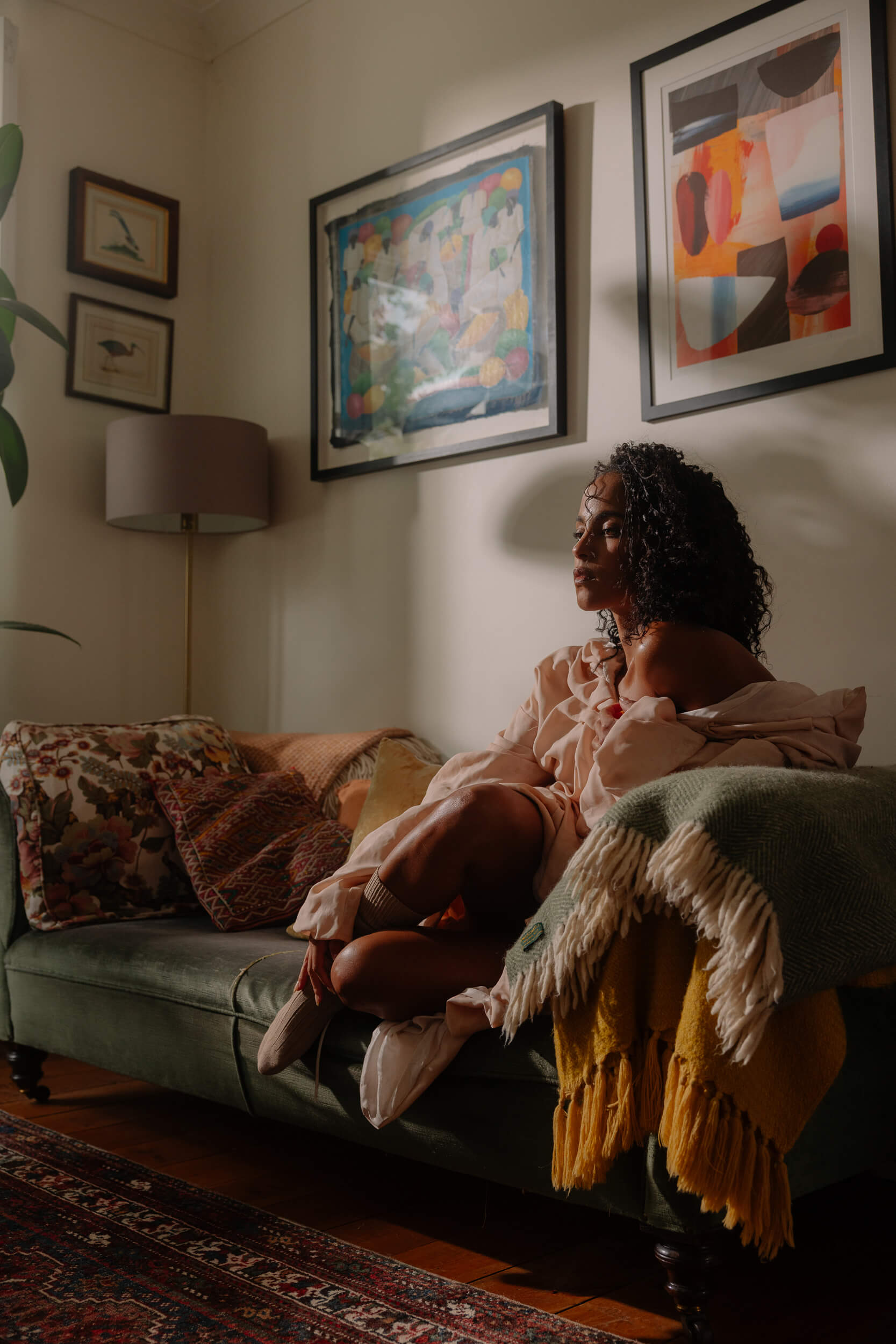
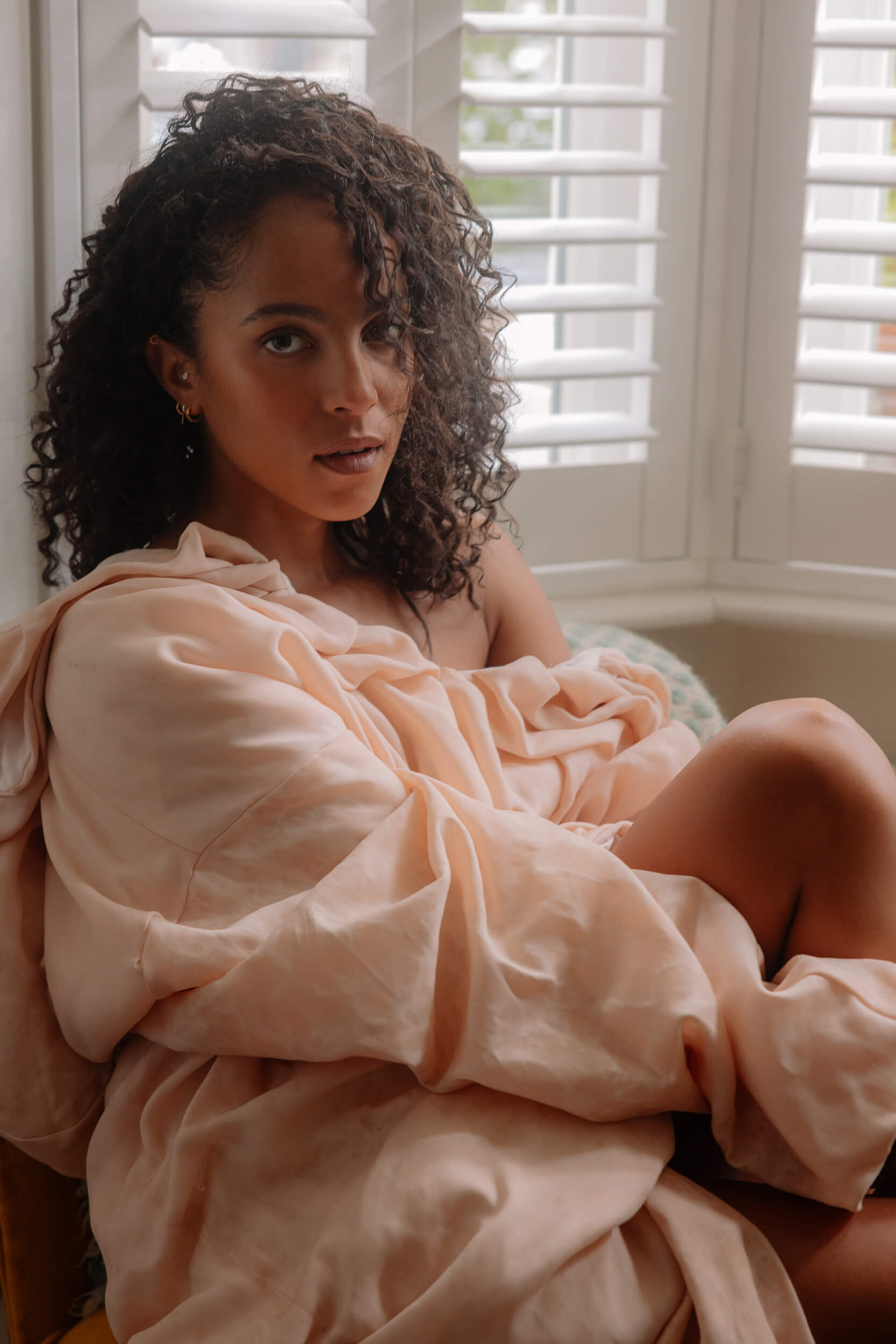
What initially drew you to the role of Gaal, and how did you approach bringing this iconic character from the novels to life?
It’s interesting because she was very similar to what I was feeling in that moment. She felt like an outsider, and she was a bit lost, it was all new to her. She’s from a water planet that’s on the outskirts of the galaxy, and now she’s brought to the centre of the galaxy, and she’s overwhelmed. She has never seen this many people, this many different people, everything is new, she’s like a deer in headlights, and that’s kind of how I felt going into this role and into this audition. It was my first big audition and the first time I’d gotten through to the third or fourth round of anything. So, for me, that’s what I was feeling, the anxiety I was feeling in real life was what I used for the character.
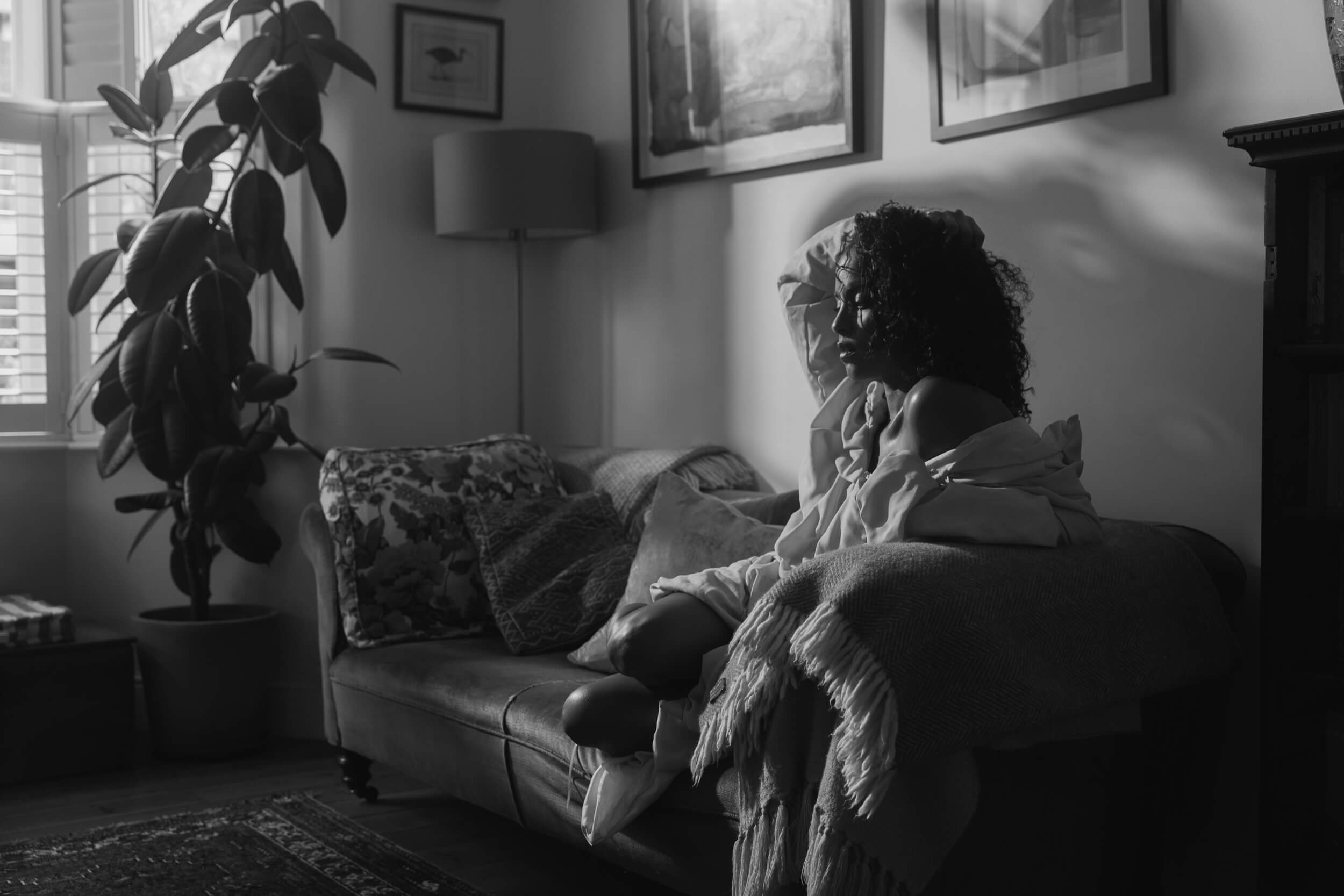
“…the anxiety I was feeling in real life was what I used for the character.”
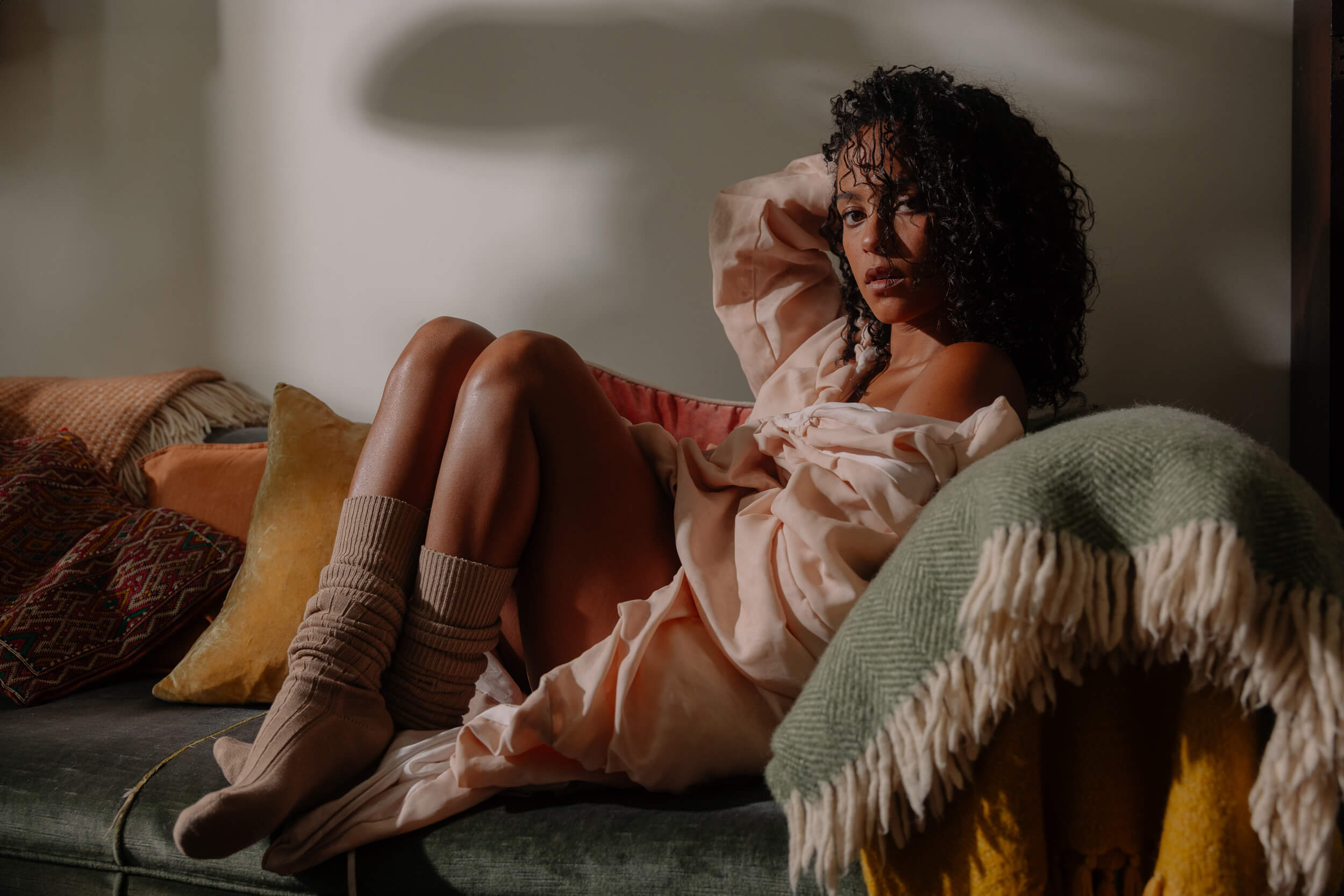
Well, it’s the best when this happens.
I know, it was very much in parallel, yeah. And now, going into season 3, she’s a lot more confident, and again, I feel very similar to that. It almost feels like we’re both evolving in the same area, together, which is nice.
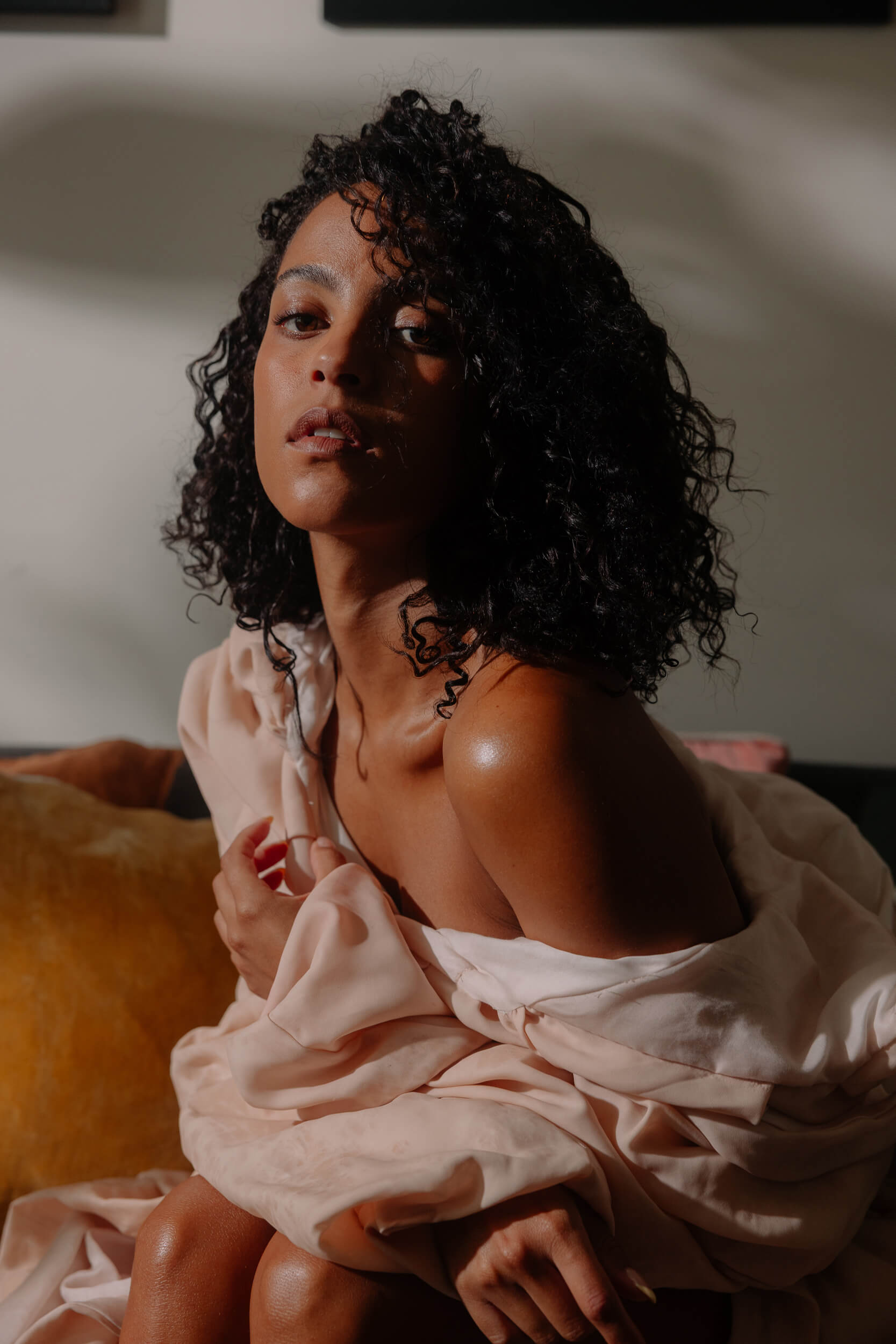
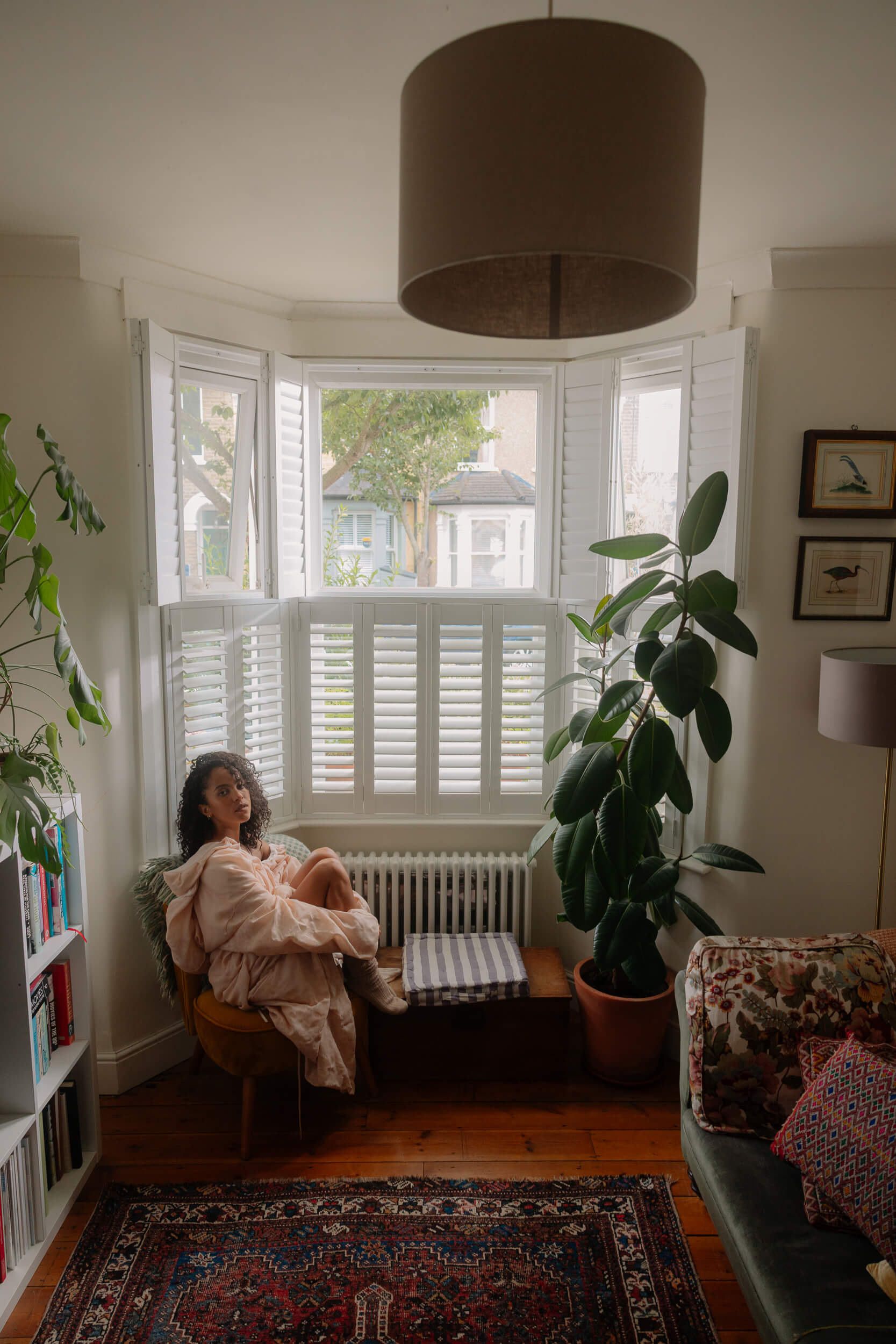
The show, however, expands significantly on Asimov’s original work, particularly in developing female characters. How do you feel about being part of this kind of interesting expansion?
Really great. I mean, it’s a reflection of what the world would be 5,000 years into the future, or however long it is. And that along with having a diverse cast, diverse with race, or diverse with physical ability, or diverse, with LGBTQIA – all the things should be represented because the future is that, you know, and I think it’s interesting. The books were written in the 40s, and we’re making the show in 2025 that is kind of depicting a future that would be 5,000 years from now, so things evolve, and things should be inclusive.
There’s a lot of people that are book enthusiasts that didn’t feel good about the show.
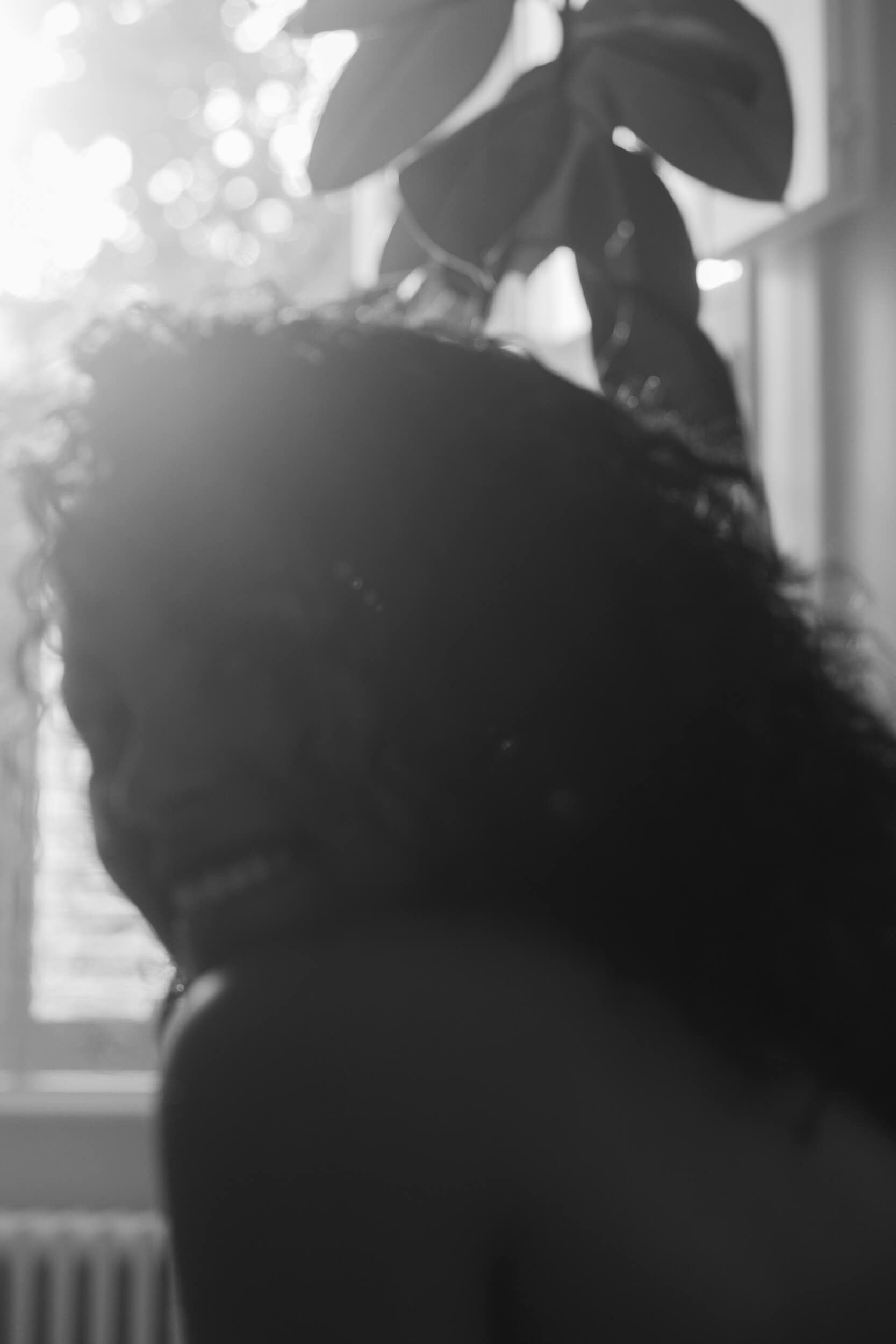
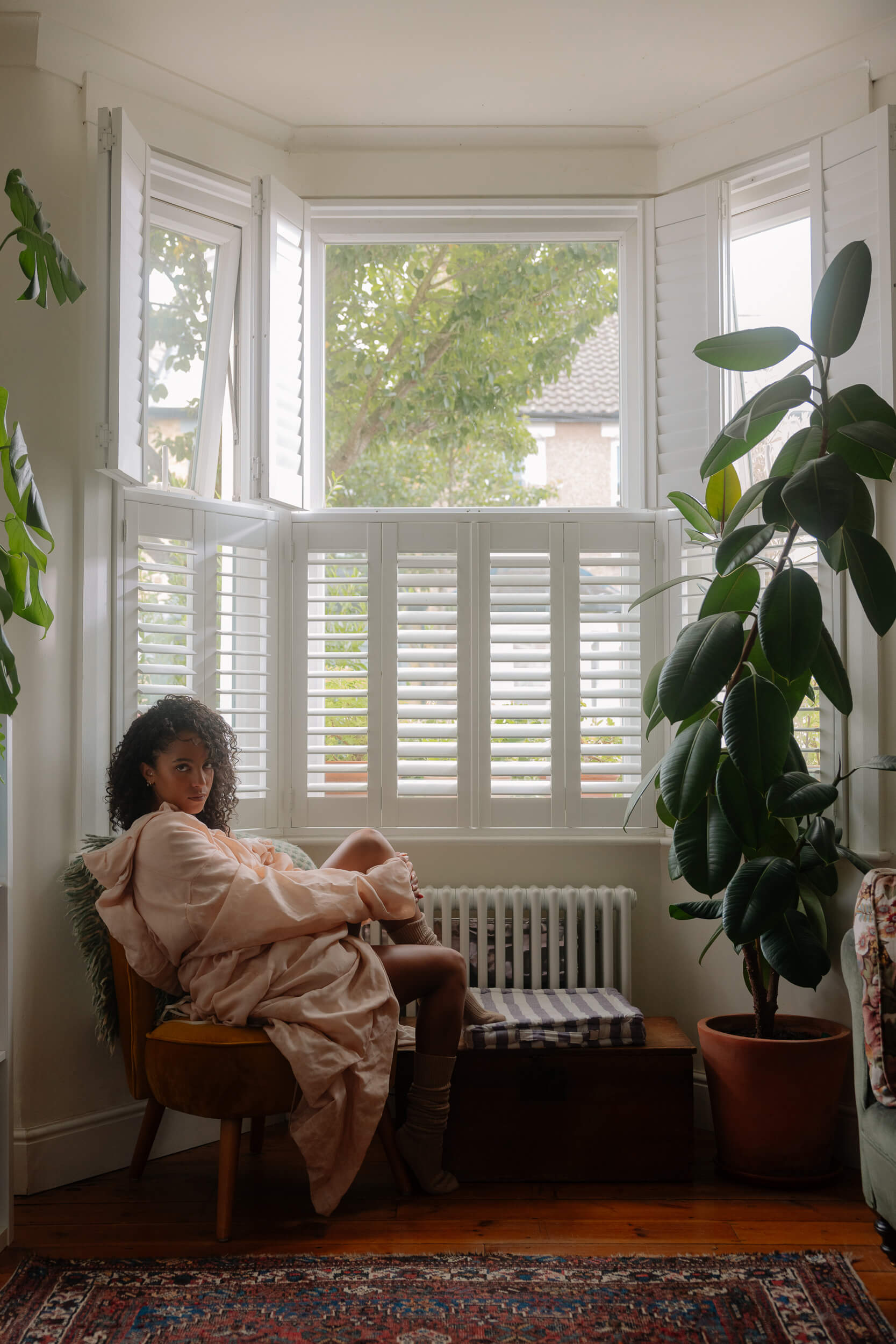
Controversial opinions, I guess.
Yes, but I think it shouldn’t be controversial.
I understand, if someone’s adapting a book that you’re obsessed with, how it can be difficult to accept that it’s not the same. But it’s also an adaptation, and it’s based on those books, it’s not exactly word for word what that is, so, you have to see it as two different things. Once you do that, then I think you can accept the changes better.
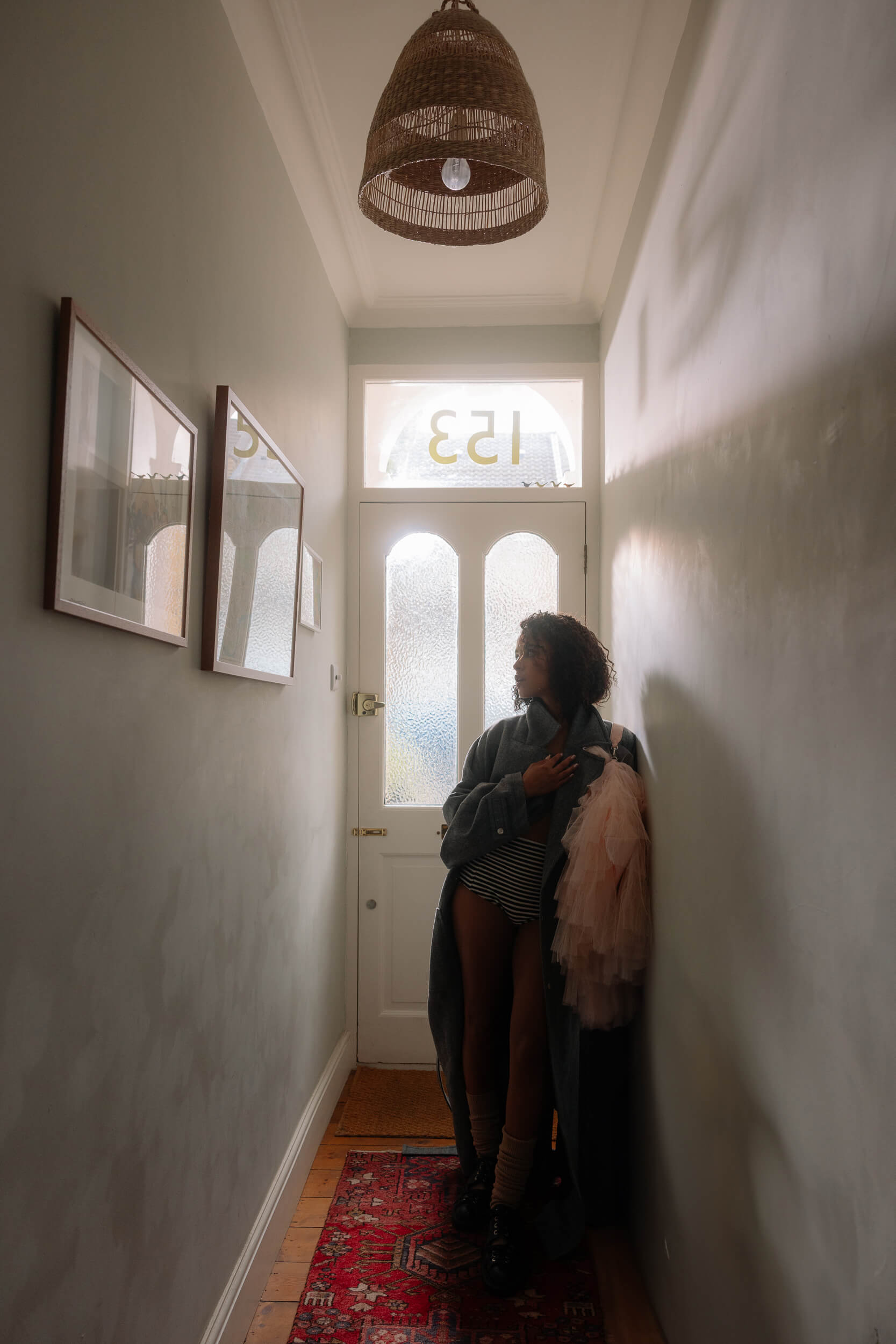
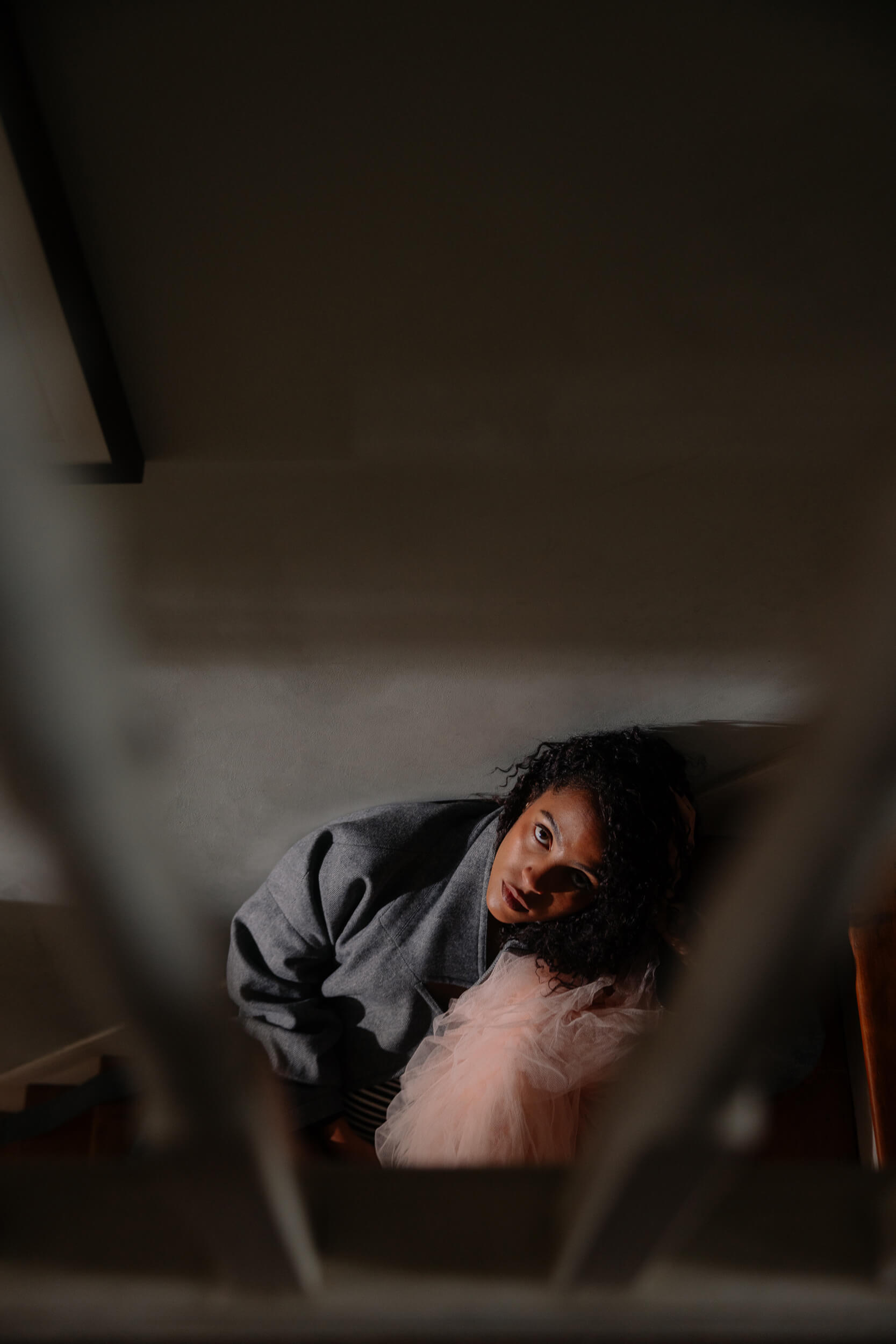
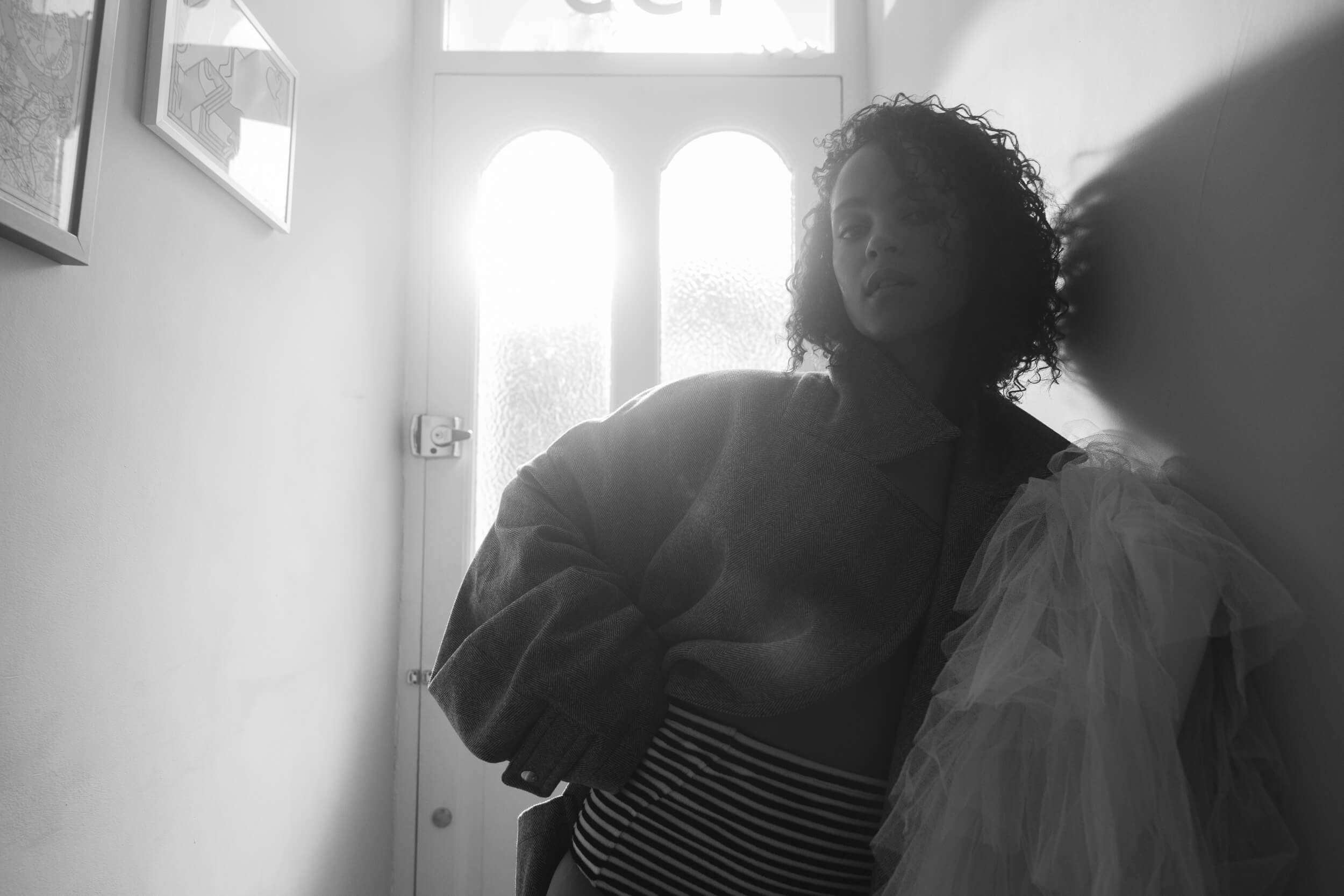
The show is a mirror of our times, while the book was a mirror of its times.
Of course. And, you know, the whole idea of “Foundation” is that cycles repeat themselves, but they are cycles that are repeating themselves in different moments in time.
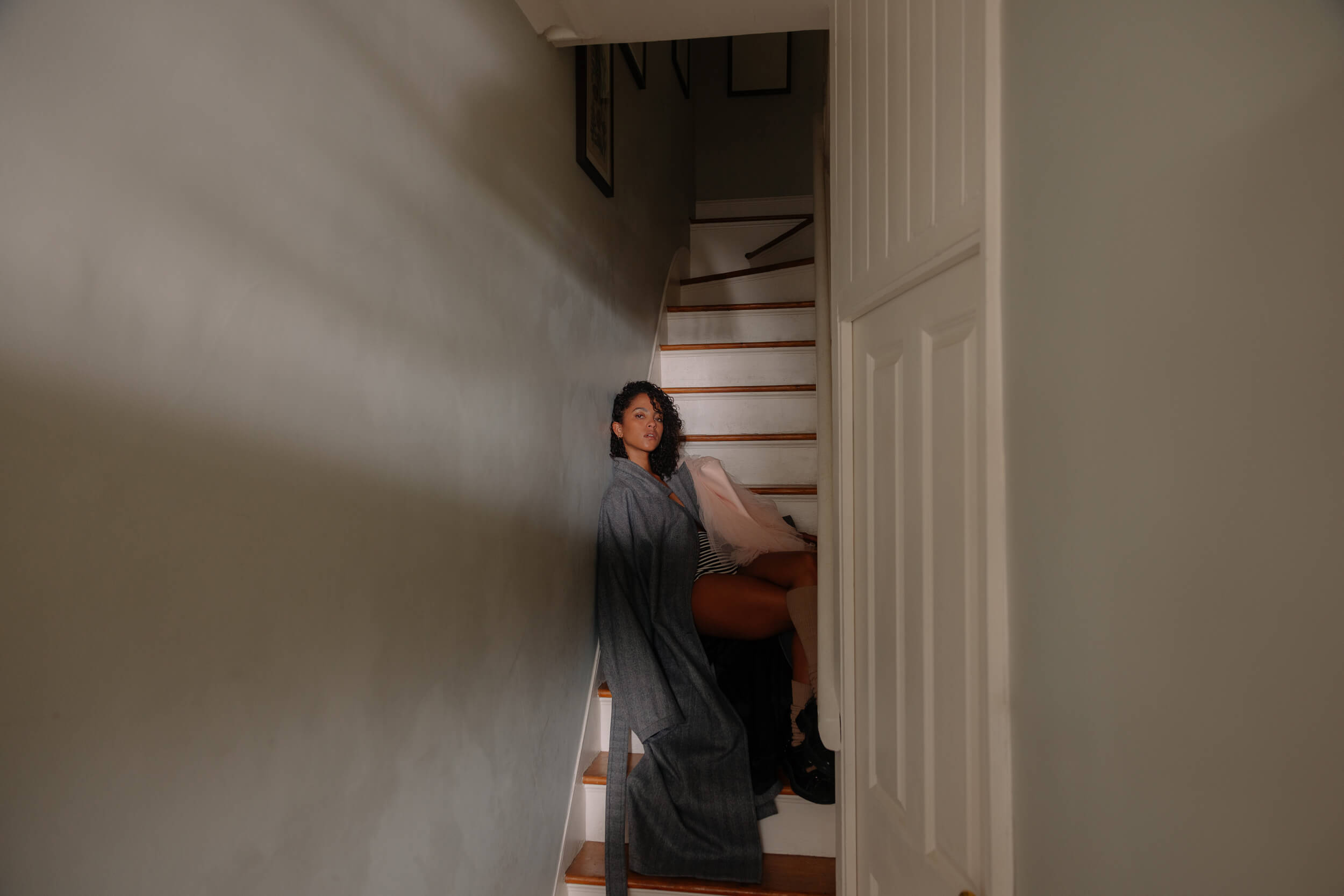
The show features incredible production values and visual effects. How did working on such elaborate sets and with extensive CGI affect your performance?
The sets are so elaborate that we didn’t even use really any green screen. The only times we used green screen was if we were picking up shots of scenes that we’d already shot. So, we really live in those worlds. Those sets are real, so real that when they add CGI, when they add all the VFX stuff, it’s literally when we’re looking at a hologram or they’re adding a spaceship flying in the background. Other than that, it’s real, and we’re very lucky to have that kind of special effects.
And all the crew that we have is amazing, they create these things and bring them to life, making it easier for us to work in that kind of environment because I don’t have to imagine most of it, which is really great. The first time I walked onto a spaceship, I was in awe, and I couldn’t quite believe that they built this thing from scratch.
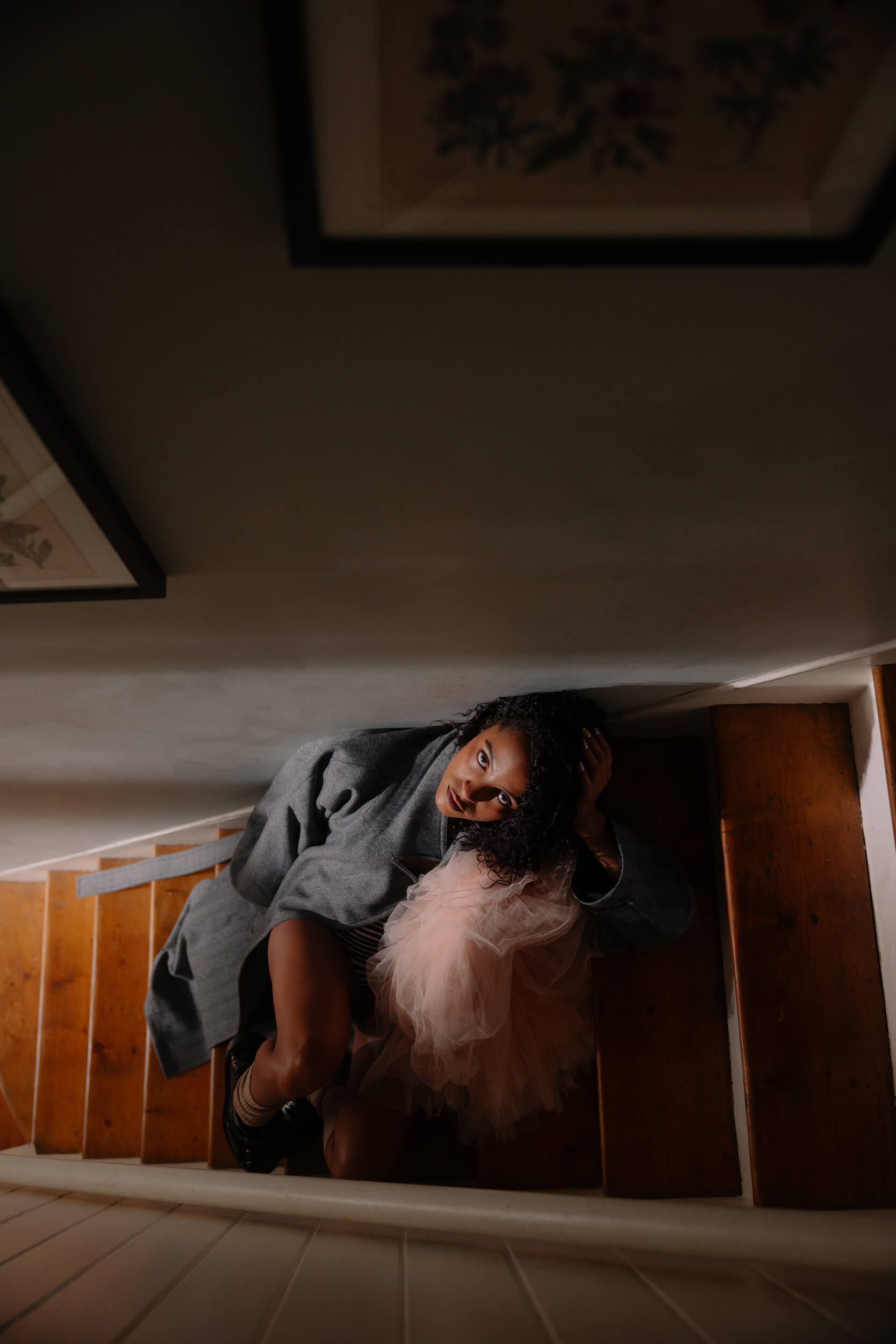
“we really live in those worlds”
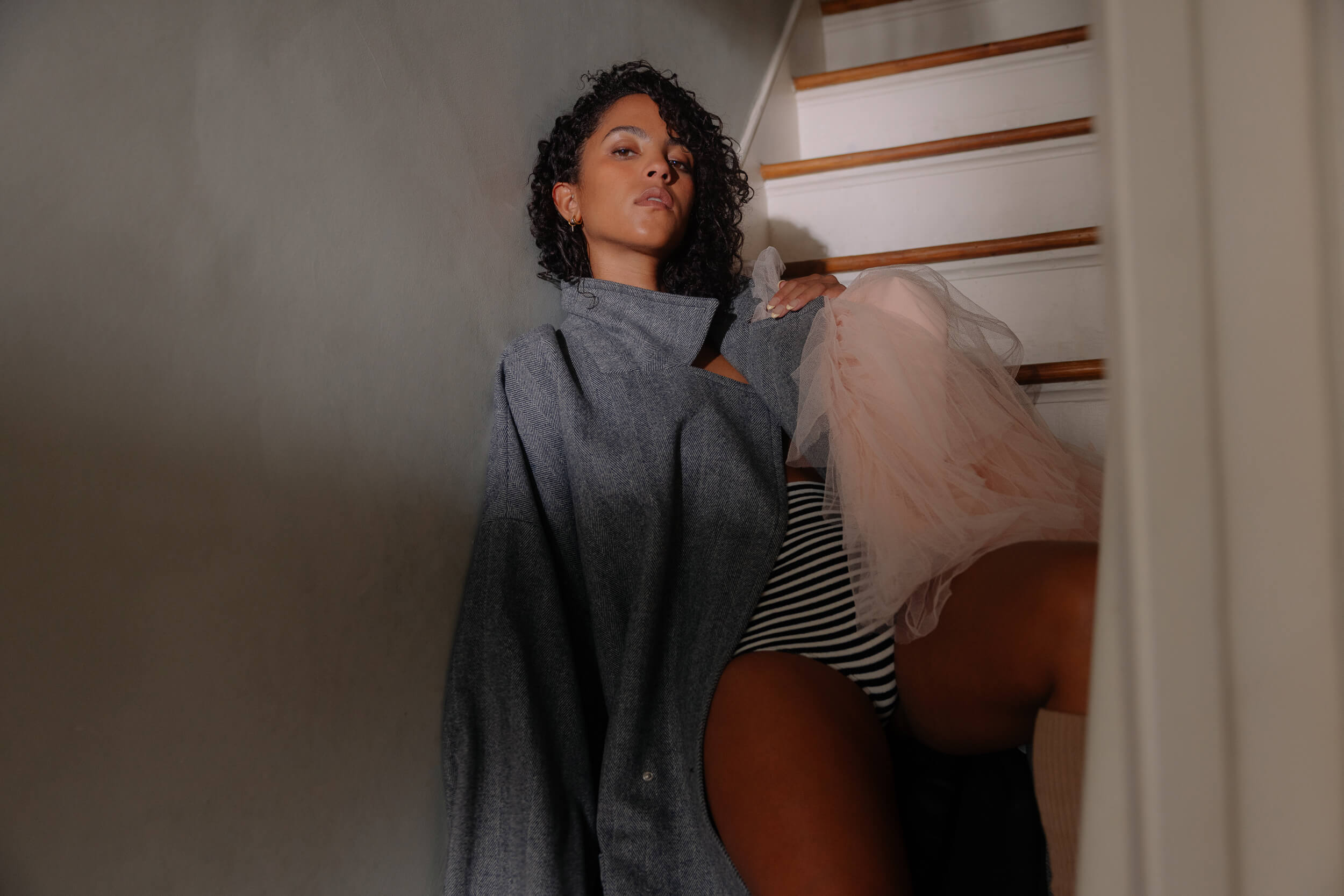
And what was the most challenging scene or storyline that you had to tackle as Gaal, and how did you overcome those challenges?
Interesting. I have a few throughout the seasons. I’ve got a few losing really close people to Gaal. A lot of people die around her, which is really sad, and it’s what propels her forward and drives her to the place where we find her in season 3 and what drives her through to the end of that. I think those moments were quite tough because I think the evolution of trying to portray that in the most honest, real way is always a challenge for an actor that’s never had to do that before. It was my first time having to do those really intense scenes. I kept thinking, “What do you draw from your real life to make that real?”.
So, I guess that the heightened emotions were the most challenging for me.
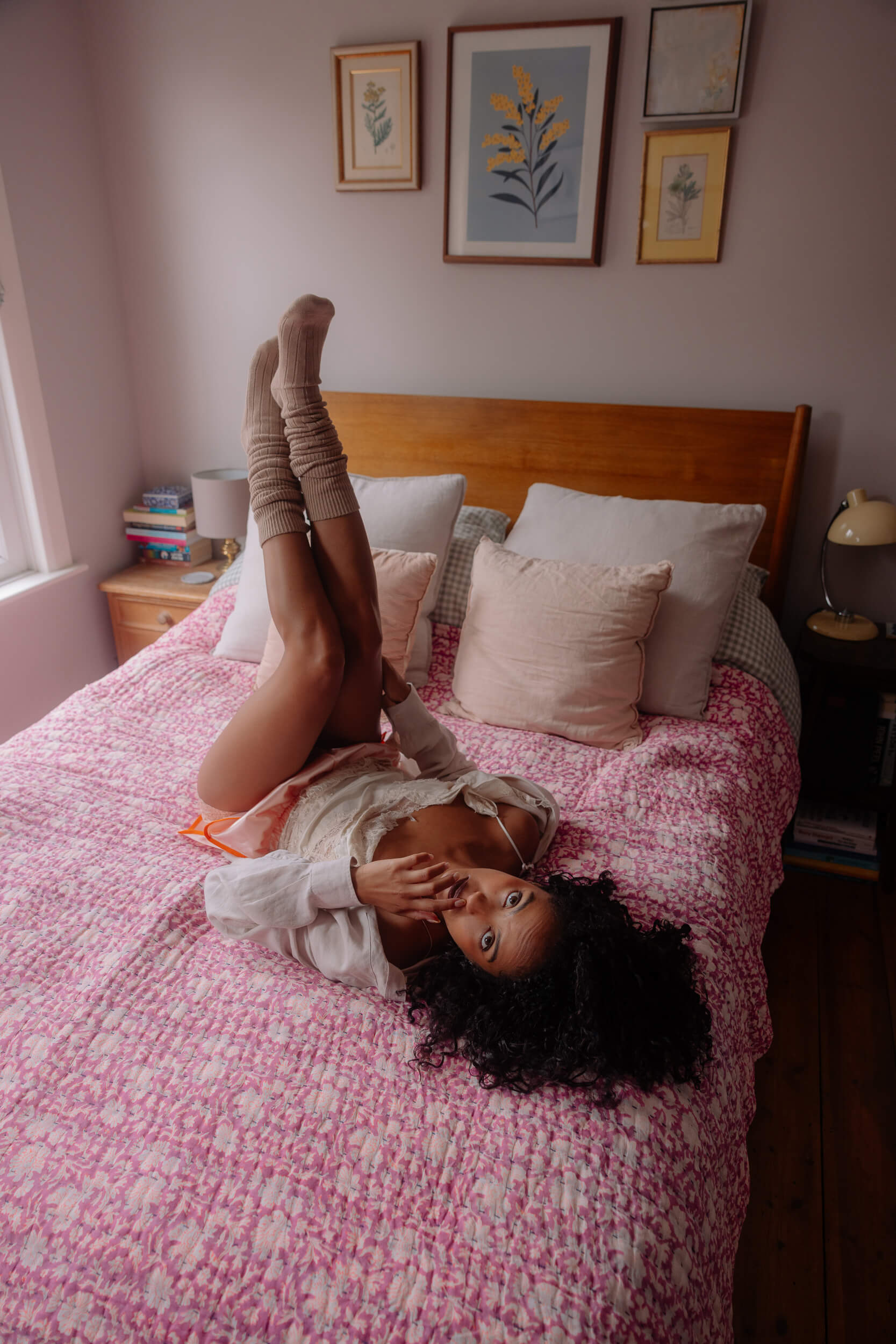
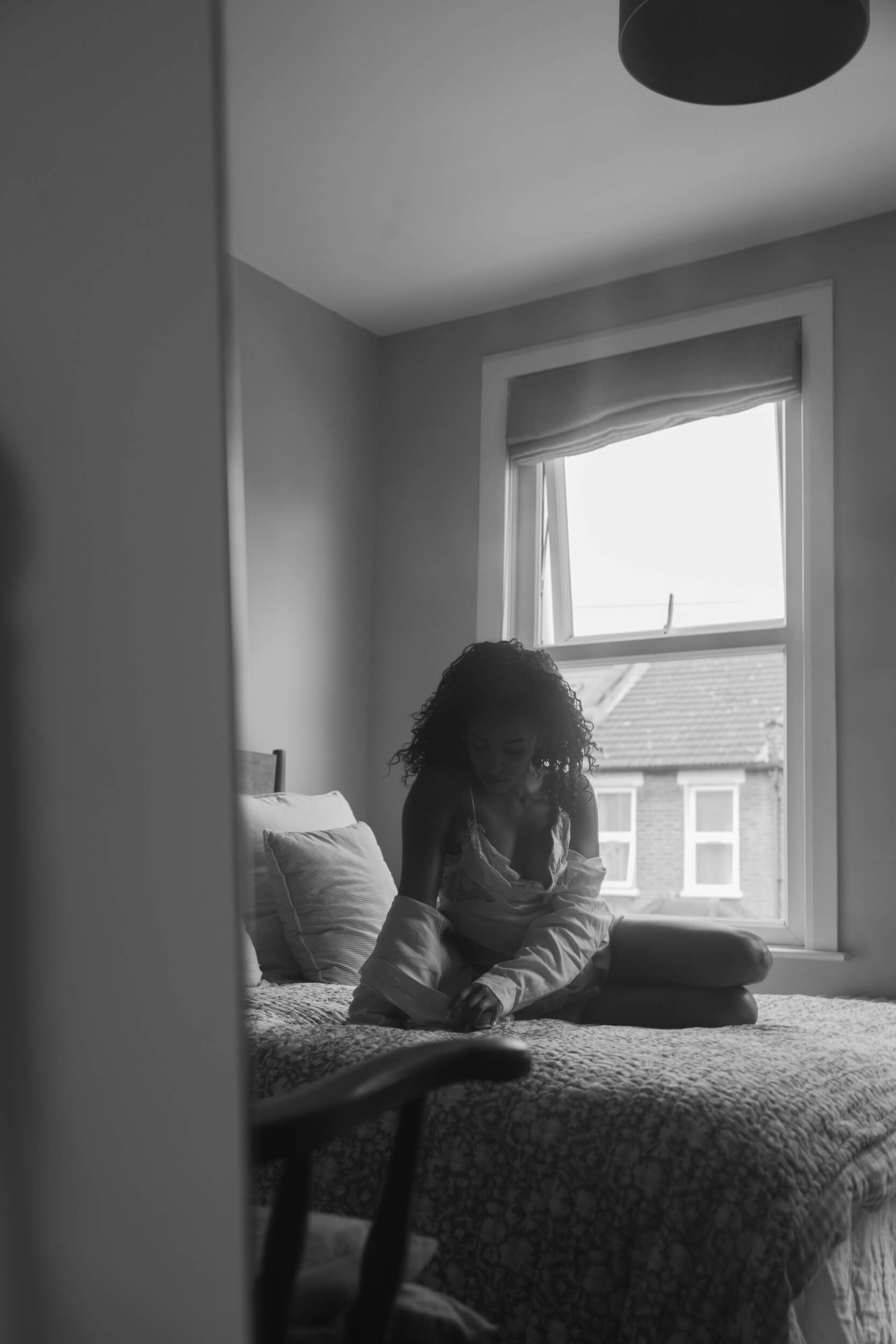
“Foundation”, in fact, explores themes like destiny, free will, and as you were saying, the cyclical nature of civilisation. Which of these themes resonates with you the most?
I think a lot of it is relatable to not just me, but to society as a whole. There’s a scene in this latest season where the Mule has taken over Trantor which is now a war zone and you see these people taking refuge and hiding away – when I watched this episode, I thought that’s the reflection of the times we live in, of what we’re experiencing now. It’s so interesting that we’re doing that through the show, mirroring our times, whether that’s on purpose or not. But that’s also just the cyclical nature that we as humans have, which is reflected in the show.
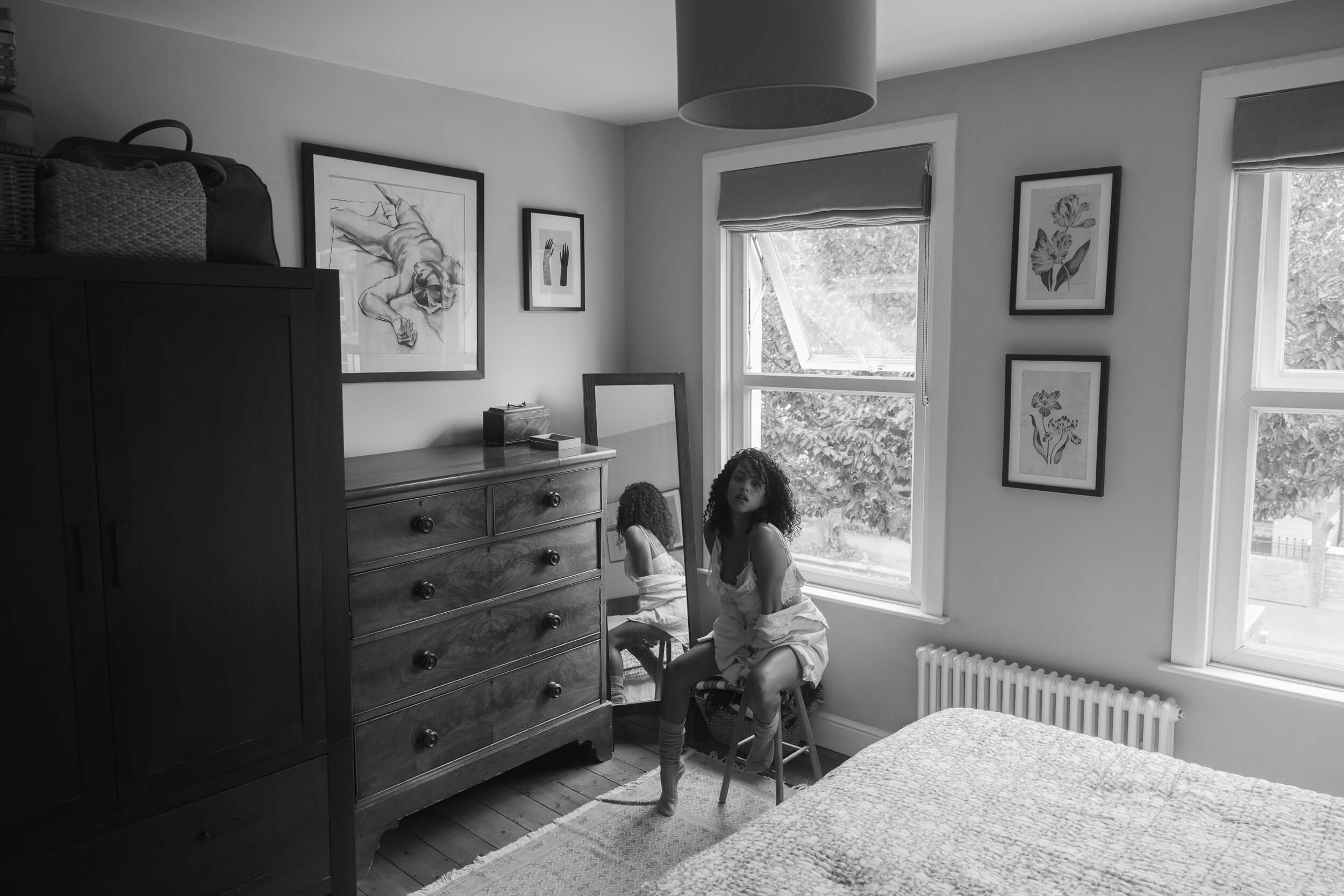
Speaking of which, Gaal is closely tied to psychohistory, which is such a fascinating idea – using mathematics to predict the future of entire civilizations. How do you think this concept connects to our real world today, and did it change the way you look at science or history in your own life?
Yeah, it’s an interesting thing because it’s the idea that using data, you can predict what masses of peoples are going to be doing or what’s going to happen. It is a combination of taking what has happened and projecting into the future.
An interesting concept is this cycle that we kind of don’t learn from that is repeated. The books, again, were written in the 40s and we are again in a situation that we were in then. And so that’s insightful of, “How do we change that cycle? What can we do? Even if we try, is it possible? Is it just the nature of what we’re like?”. It poses more questions than answers, to be honest.
And how has playing Gaal changed you as an actress and what skills have you developed through this role? Did you discover anything new about yourself thanks to her?
Yeah, I’ve done more in this role than I’ve ever thought I would have done in my entire career. I got to do all sorts of stunts; I got to work with four different directors every season; I got to learn a different language; I got to work with the most incredible actors, people like Lee Pace, Laura Birn, Jared Harris, Alfred Enoch and many more, which are all people that I’ve admired my whole life and now are my friends.
I’ve been doing this for six years, and hopefully I will get to continue acting, but I will forever have Gaal and the show in my heart. It was my first big thing, and the biggest thing to start with. I dove right into the deep end, and I’m very grateful for that.
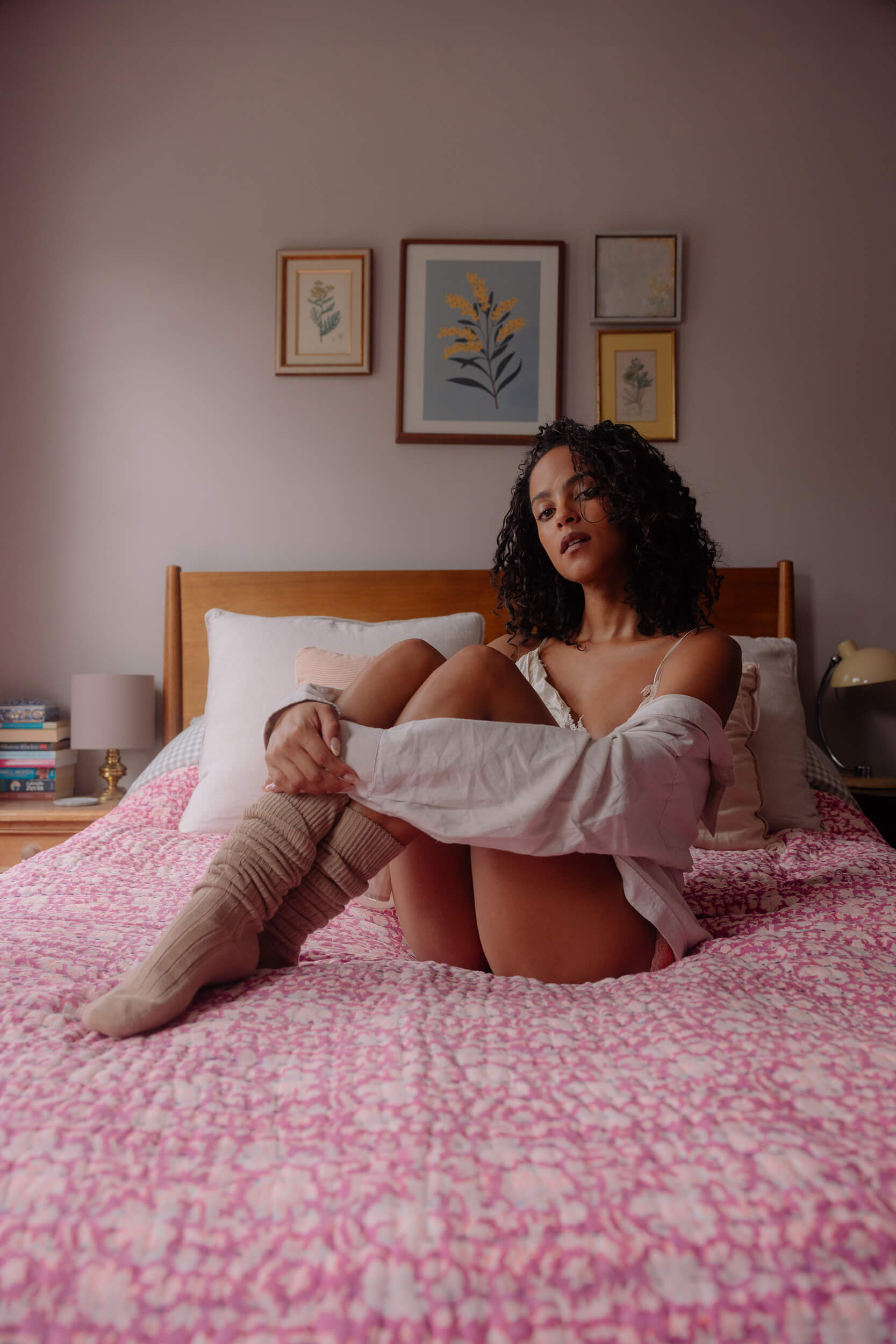
“How do we change that cycle? What can we do? Even if we try, is it possible? Is it just the nature of what we’re like?”
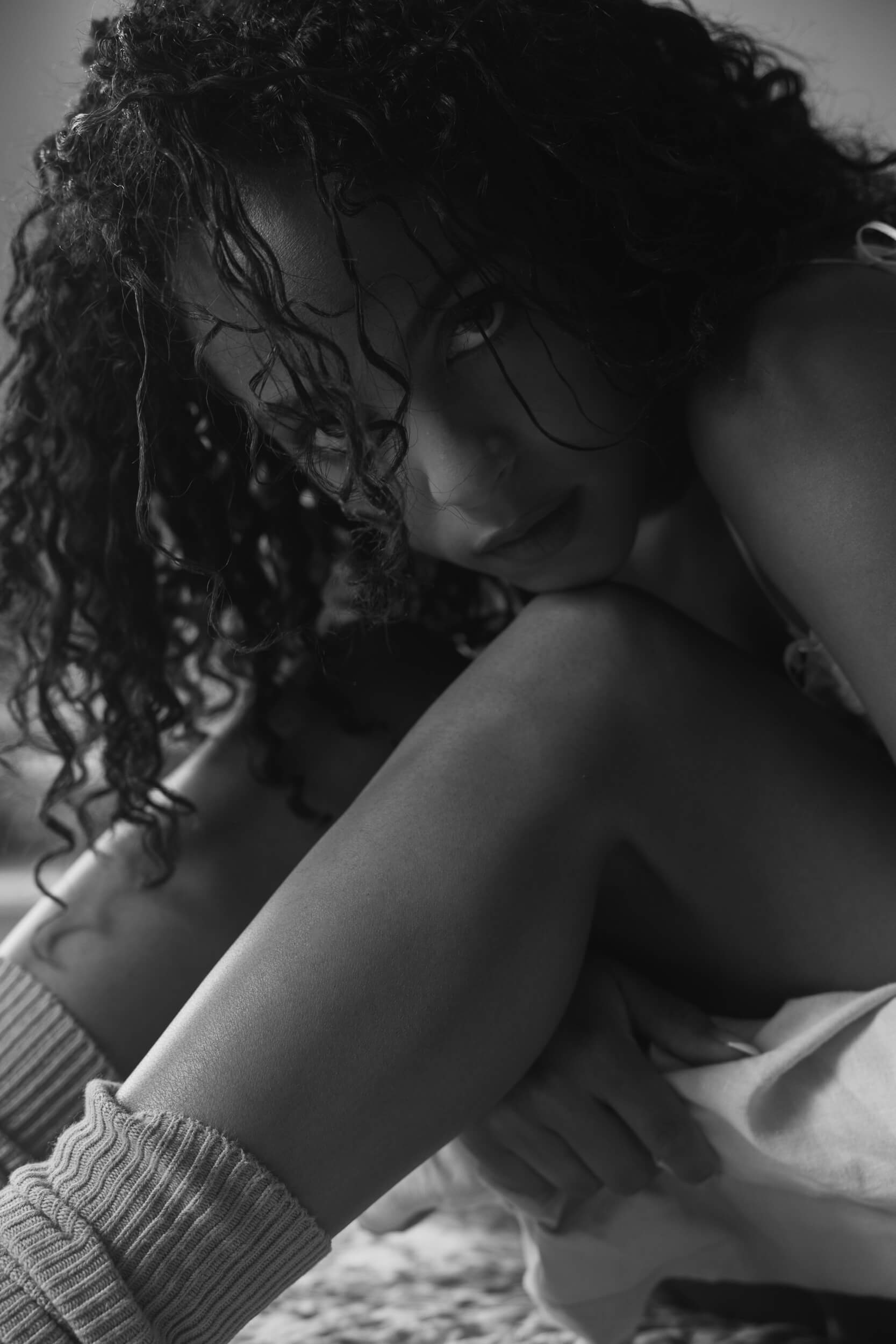
If you could ask Asimov one question about the “Foundation” universe, what would you ask him?
So, there’s a difference between the books and the show, but in reference to the “Foundation” TV show, I have one question that I don’t really have the answer to yet. You know, I obviously narrate the show, and obviously, this is an adaptation version, so, it’s beyond the Isaac Asimov of it all, but if Asimov was the one who created this world, and imagine he has created this show and this version of “Foundation”, I would ask him: who on Earth is Gaal Dornick talking to when she narrates the show?
Because I have an idea, but we haven’t gotten there yet, so, I don’t actually know who she’s talking to.
Yeah, it’s like “Twin Peaks” – Cooper is talking to Diane, but we don’t know who Diane is until the end.
Exactly, until the end!
So, when the end comes, I’m sure we’ll find out. But I saw a Reddit thread the other day where someone had written down every single Gaal Dornick’s narration from season 1 till where we’re at in season 3 – they’d written them all down and they compiled in one document on Reddit, which I thought was pretty impressive. I have not read through them yet, but I will, because I think it will be interesting to see that as its own story outside of what “Foundation” is.
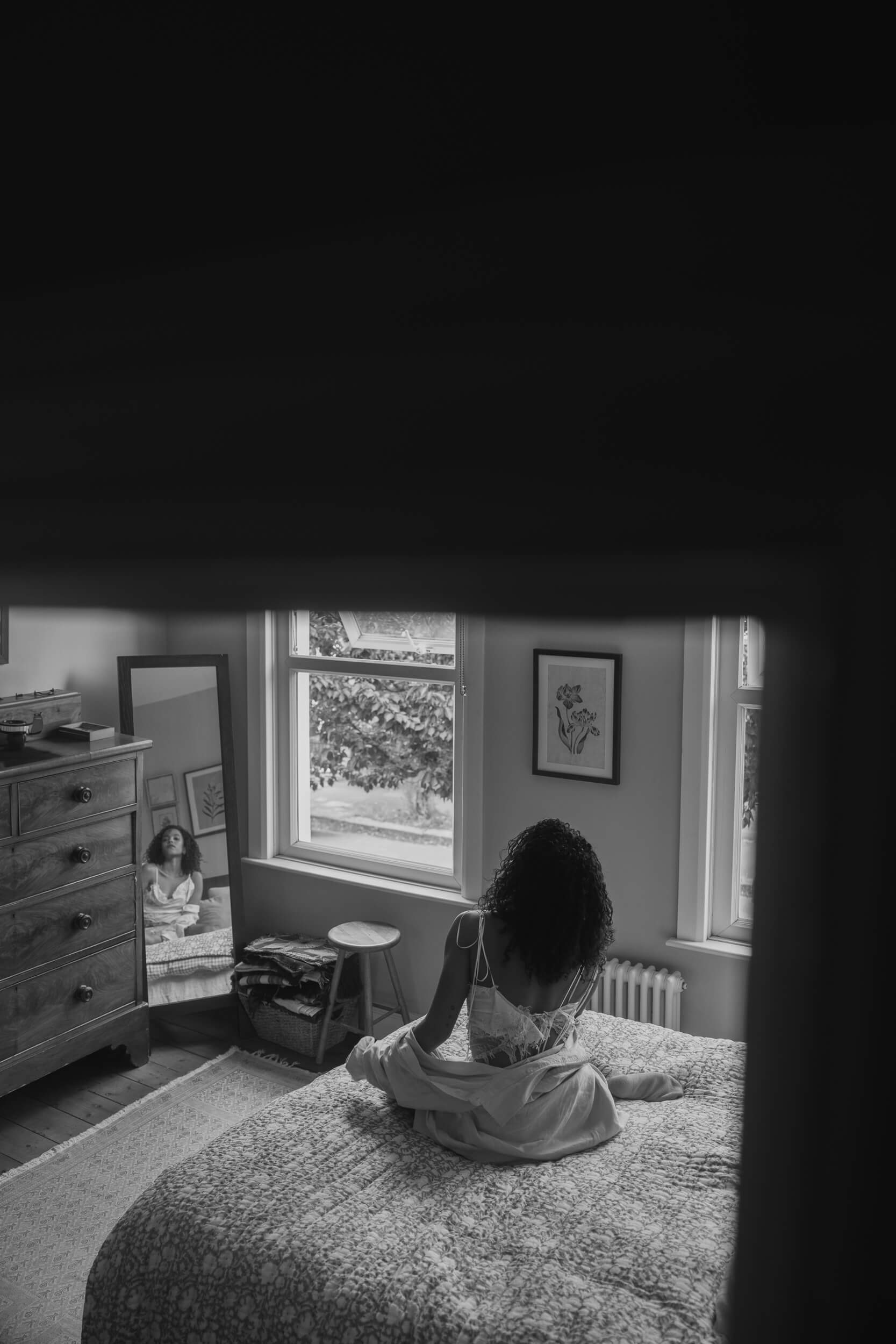
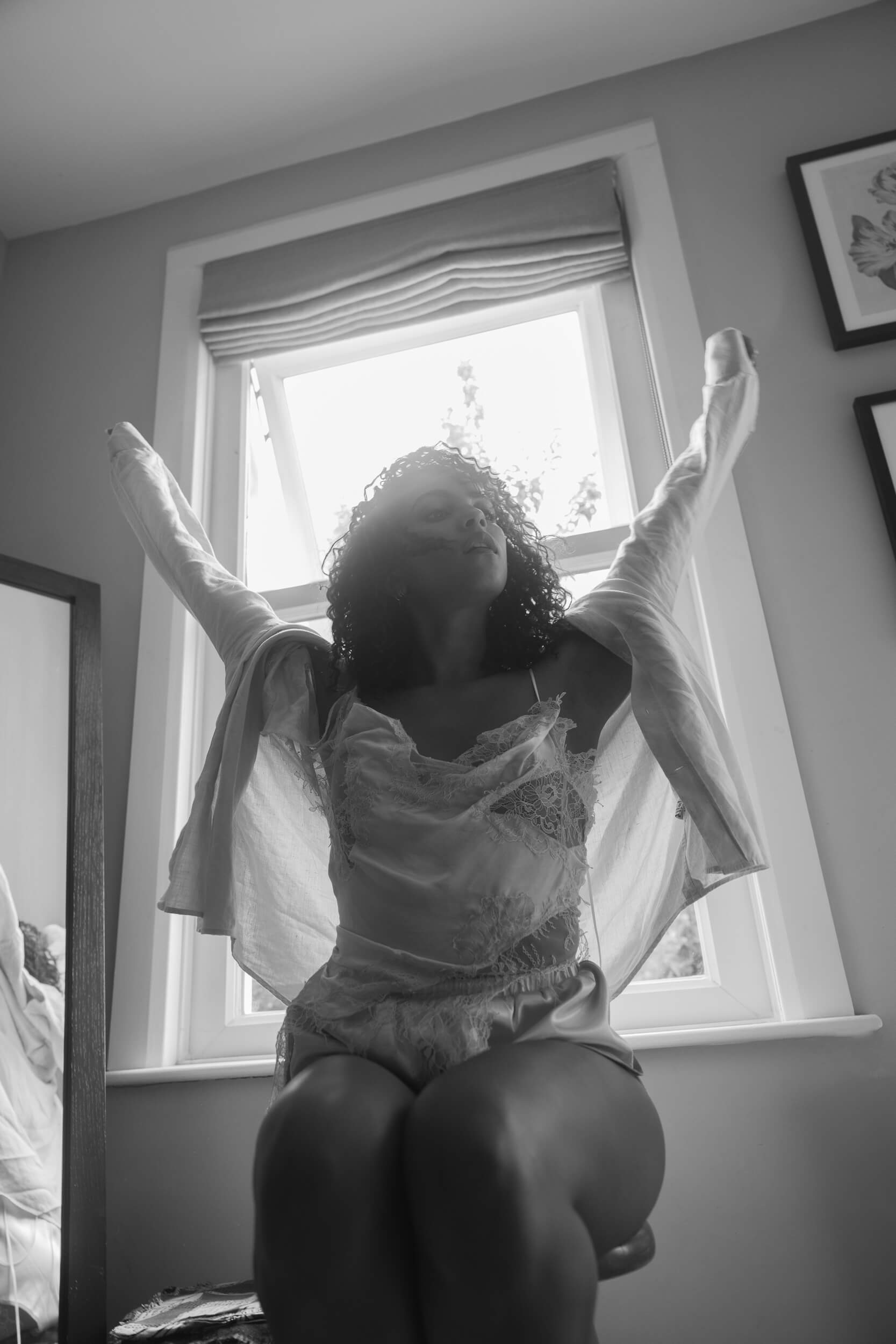
Do you usually feel more comfortable playing roles that are close to your own sensitivity, or do you prefer losing yourself in characters that are far from who you really are?
I think the former. I think I am certainly someone that draws a lot from myself for my work.
I mean, I’ve done “Foundation” and a couple of other roles, so I haven’t had the chance to really explore that as much as I’d like to, but I do like to pull from me, even if the character’s very different. That’s probably where I lean towards.
And what is your must-have on set? Something that you need to have with you, otherwise it’s a mess.
My morning routine is usually hot water with lemon first, like at 6 am, and then I wait until after 8 o’clock to have my first coffee, which is essential. But when I first started, I used to have four coffees before midday, which is not ideal. So now I kind of try and manage that, but yeah, my coffee and my hot water in the morning are the two things that I start my day with.
What is the last TV show or movie that you saw that particularly impressed you, stayed with you for a while?
“The Last of Us”.
I just did a trip to LA, and I binge-watched the entire season. I love that show. I think Bella Ramsey is incredible, and Pedro Pascal is also amazing, them as a duo is iconic and everything in between is perfect. On the plane, I was crying tears all the time, also trying not to react too much in public.
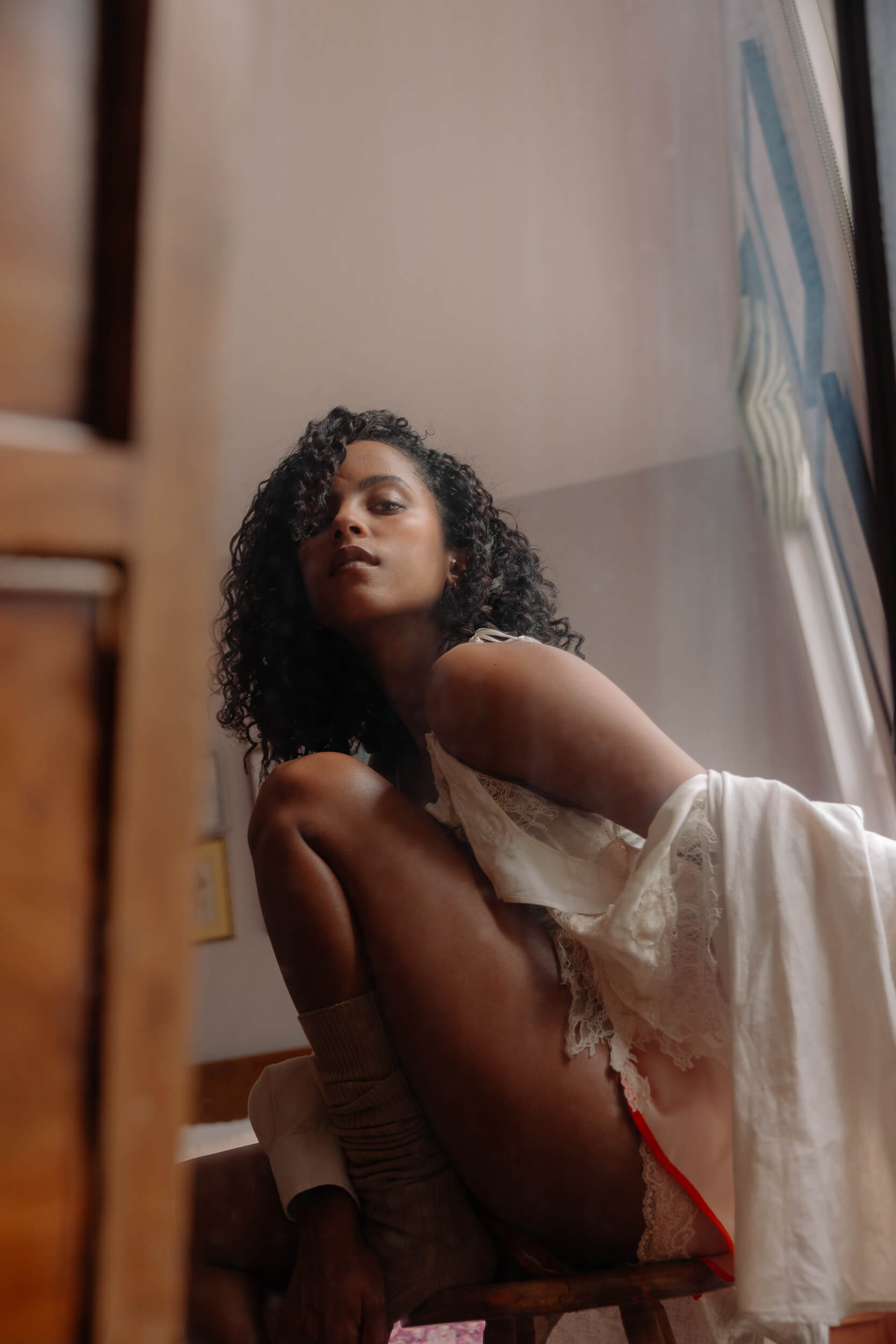
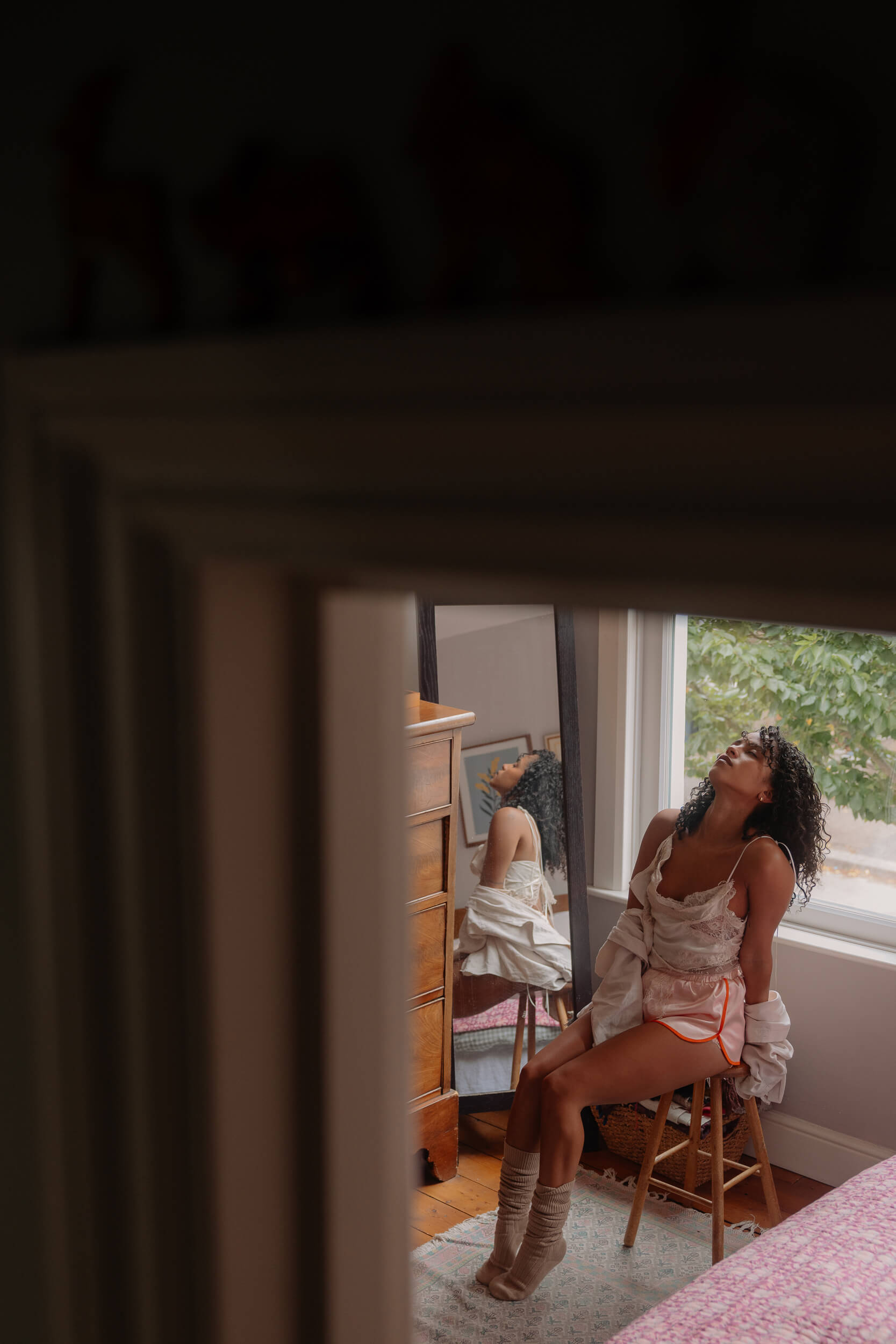
Yeah, I understand, it’s just great.
Do you have any rituals or habits that help you get into a creative mode?
I love working out. I think when I don’t work out, I get loose, I lose the structure a little bit.
I think as an actor, when we’re not working, we have to fill our days and create our own structure. When I come off a job, I’m like, “What’s my schedule? Who’s going to tell me what I need to do?” because we’re so used to that when we’re working. So, I think that’s very important to me – working out it’s kind of like meditation for me.
And when do you feel most vulnerable and how do you transform that vulnerability into strength?
I tend to be someone that doesn’t like to cry in front of people. I also have recently learned that I get very anxious when I don’t feel like I have control over situations. So that’s something I’m currently working on. I think there was a point, during season two, where things got really difficult for me, trying to figure out where Gaal was and where I was. It was an interesting experience to me, and I think since then I’ve been able to tap into that more delicate, sensitive side a lot more, which is great for my job. But also, it means I’m confronted with a lot of things that maybe I haven’t been on yet, which is also great for me. It’s interesting to be more vulnerable than I’ve ever been and it makes my work better.
What is it that makes you feel safe? And what is it that makes you feel confident?
A good relationship with my closest friends and my family.
I just came from finishing off a movie in LA and I came straight to Spain to be with my family, and it really settled my heart. I try and do that every time I finish a job because I always feel a little bit off balance when I come off of work because it’s so intense and then you just don’t have anything. So yeah, my family and my friends are the important people that bring me back to centre.
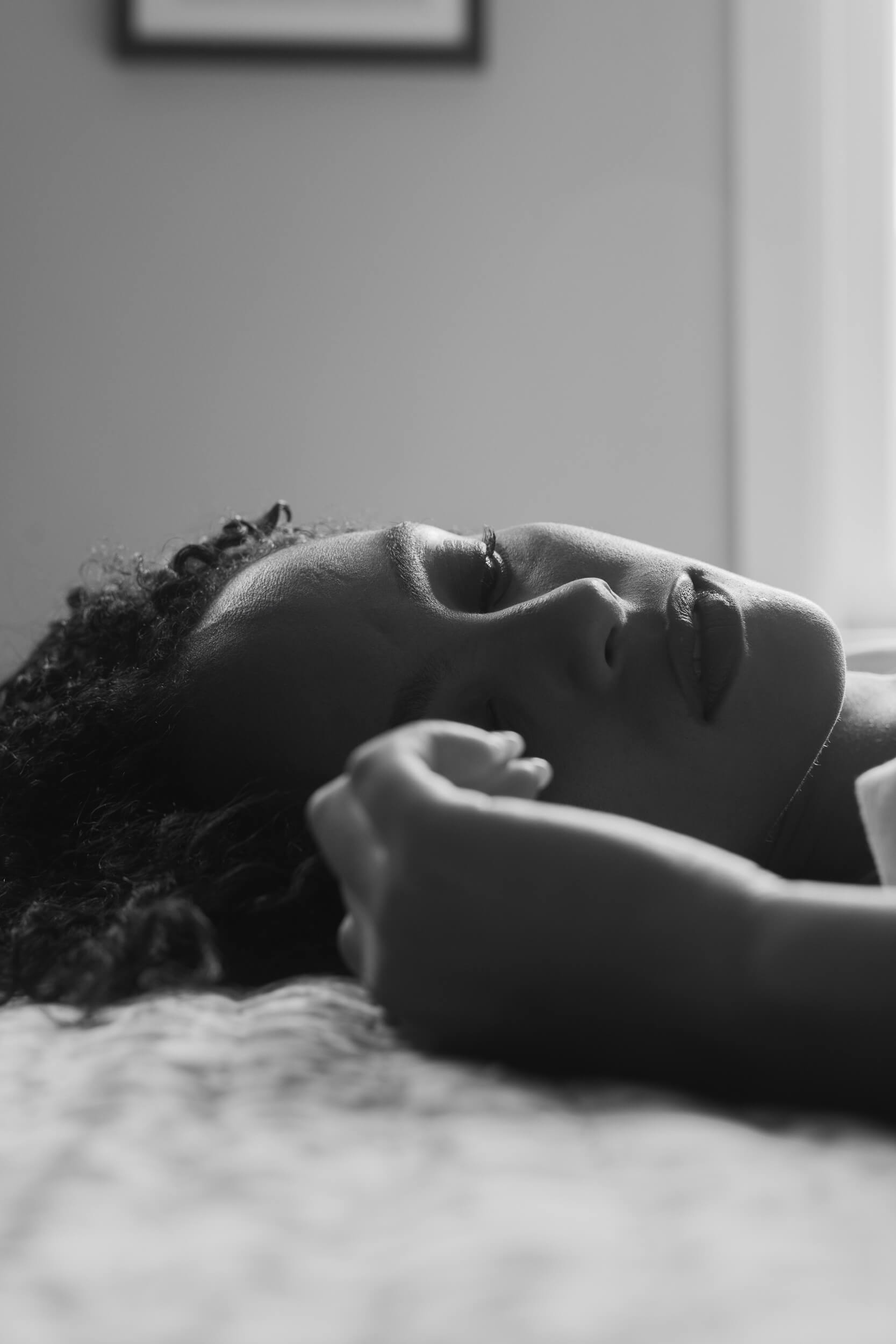
“It’s interesting to be more vulnerable than I’ve ever been, and it makes my work better.”
What is it that you’d like to see outside the window, like always, if you could make a wish?
What I’m looking at right now, which is the ocean, the sea. It would be ideal literally living on the beach.
Where are you right now?
I’m in a little town next to Almeria. Here we’ve got our family home and we’ve been in this town for as long as I can remember, since my dad was a kid and my grandma was a kid. And the special thing about this place is that we’ve got the Paseo Marítimo, which is like the walkway along the beach, which is right in front of our house, and you literally walk across it and jump down. So, it’s a very special place to me.
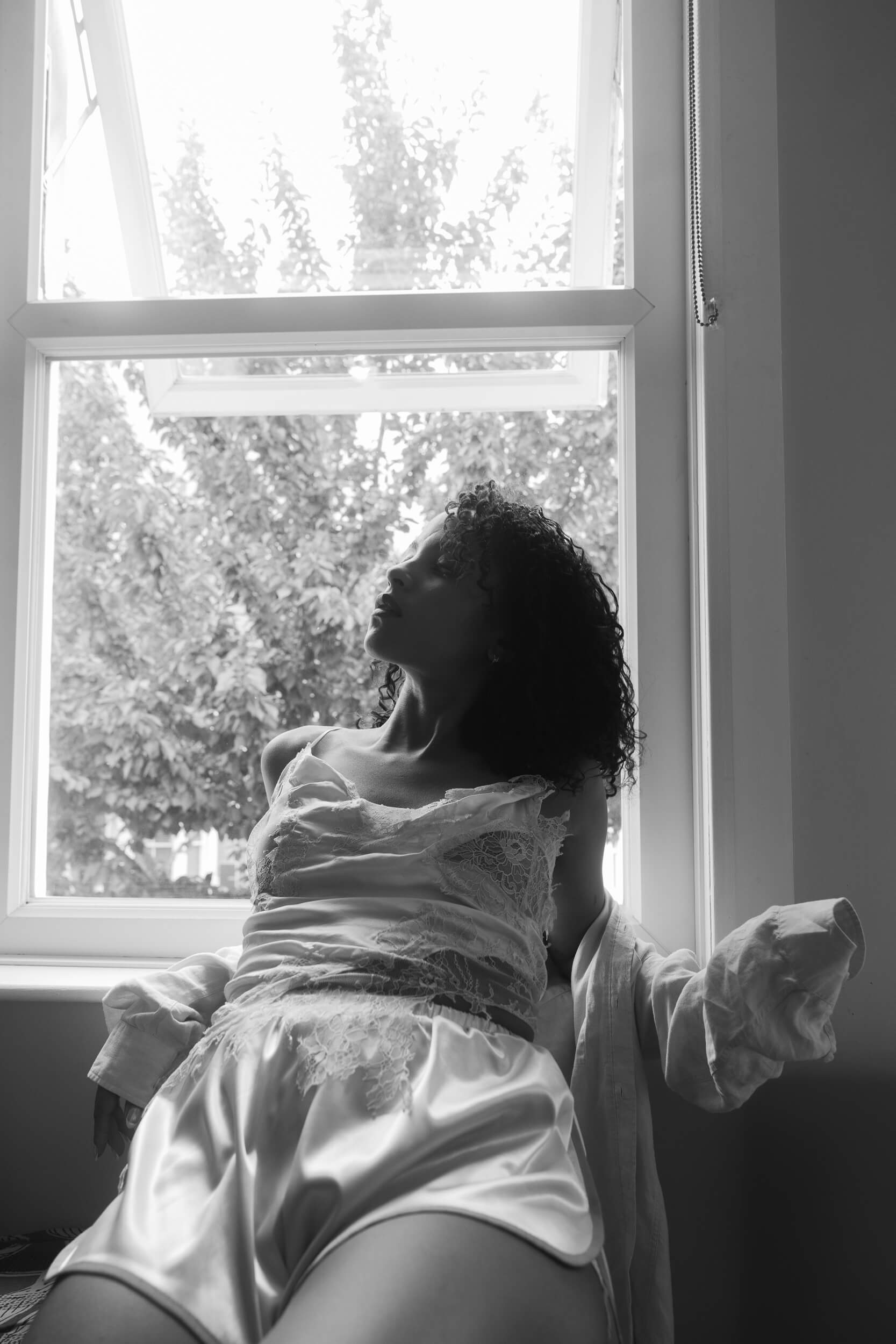
What does feeling comfortable in your own skin mean to you?
I think it’s walking out your house every day and feeling good about yourself, doing it for yourself, not doing it for anyone else. I think that’s what’s important. Whether that’s the way you dress or the way you interact with people, it’s feeling good about the way that you carry yourself for you and not doing it for anyone else, which I think is hard because that’s not what society is like and it’s not realistic all the time.
And what is your happy place?
I think, again, being near the sea. It makes me feel grounded, which is ironic because Gaal comes from a water planet. So, I mean, it was meant to be. I think I’ll probably end up living by the sea at some point.
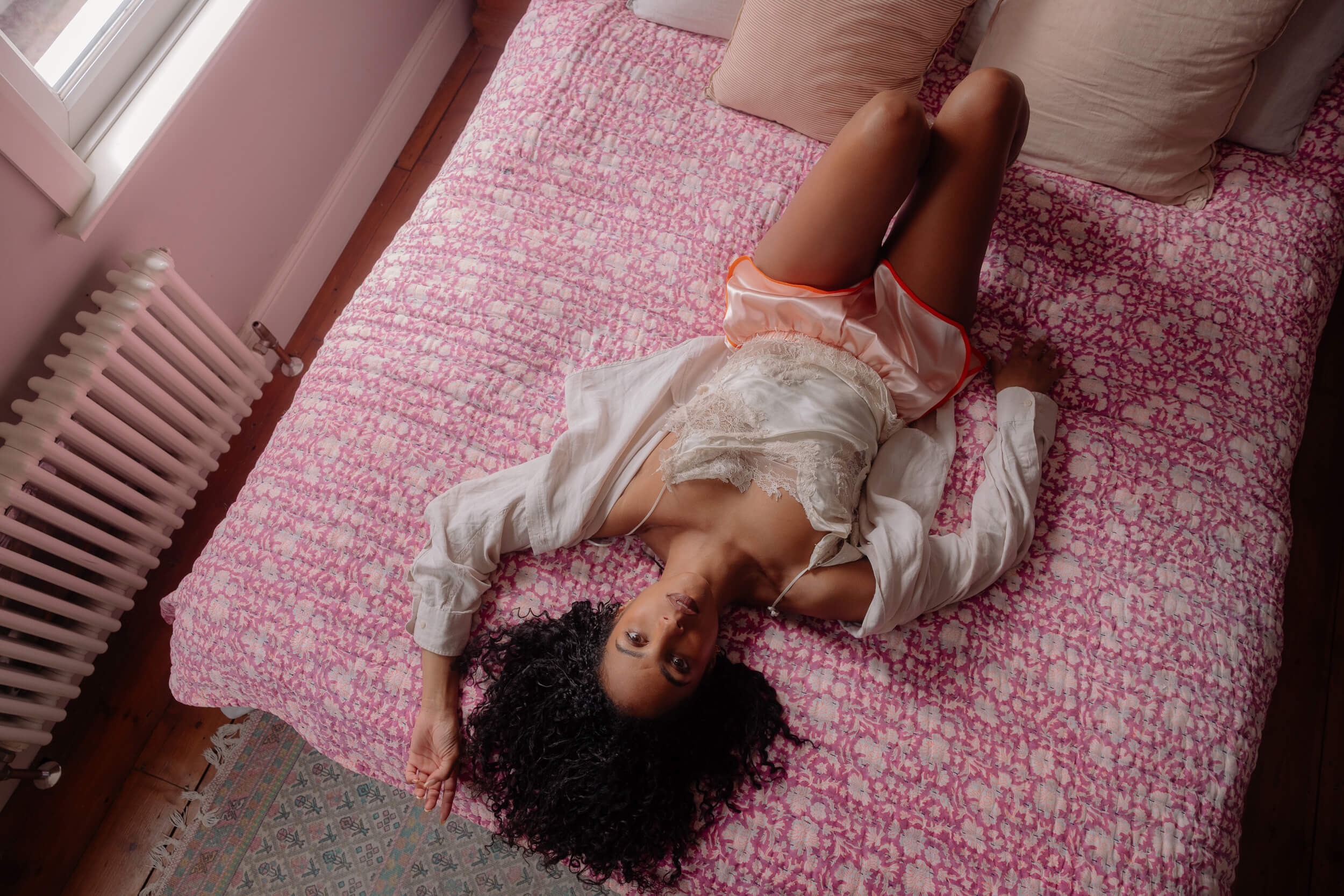
Photos & Video by Johnny Carrano.
Makeup by Kenneth Soh.
Hair by Kieron Lavine.
Styling by Georgia Medley.
Thanks to Pinnacle Pr.

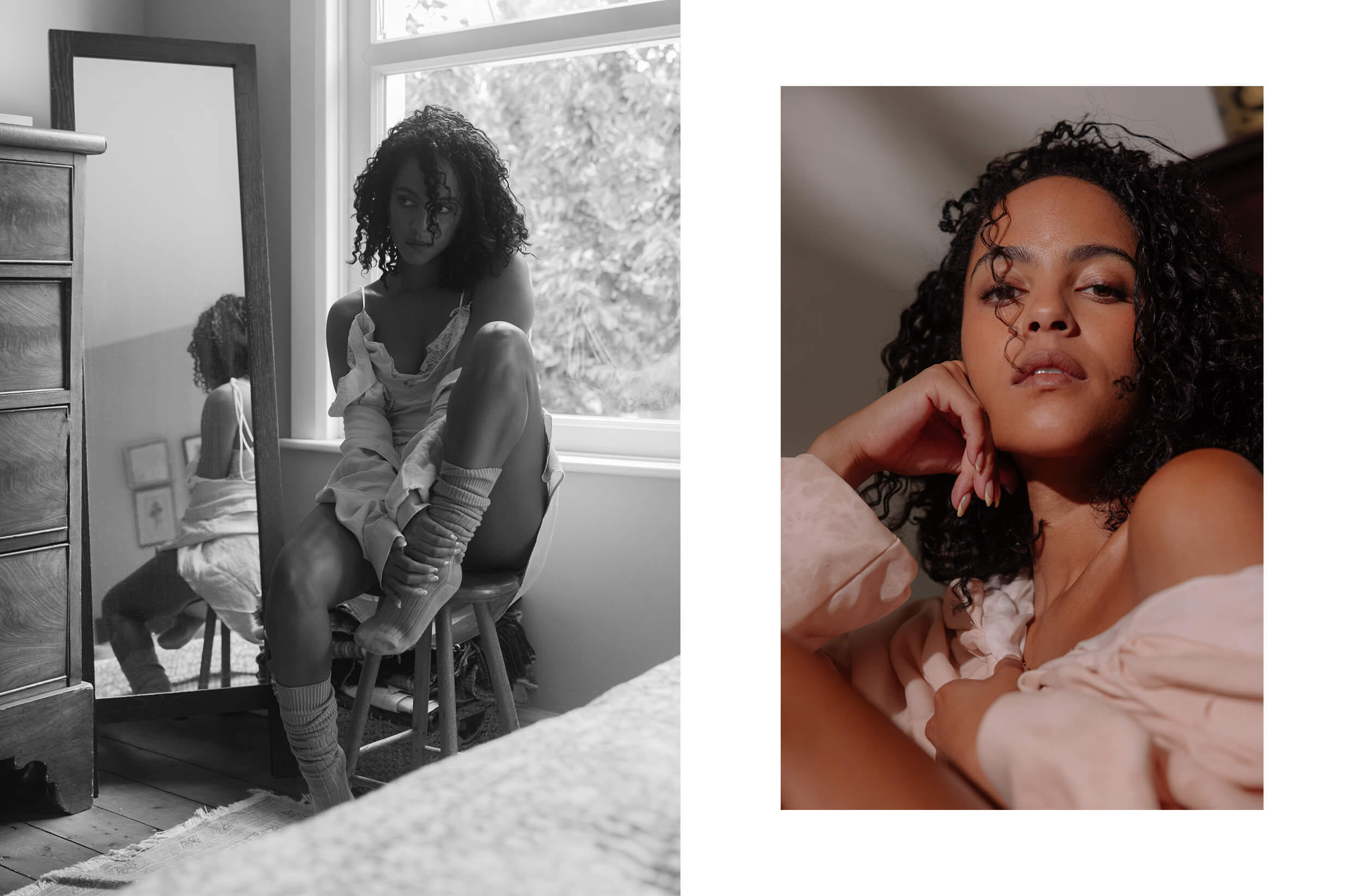
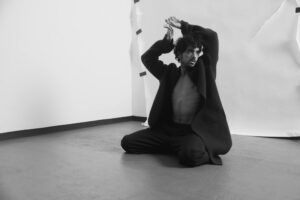



Thank you for a very in depth and insightful interview with Lou Llobell . I am a bit behind on season 3 of Foundation but hope it catch up soon